Graduate Students
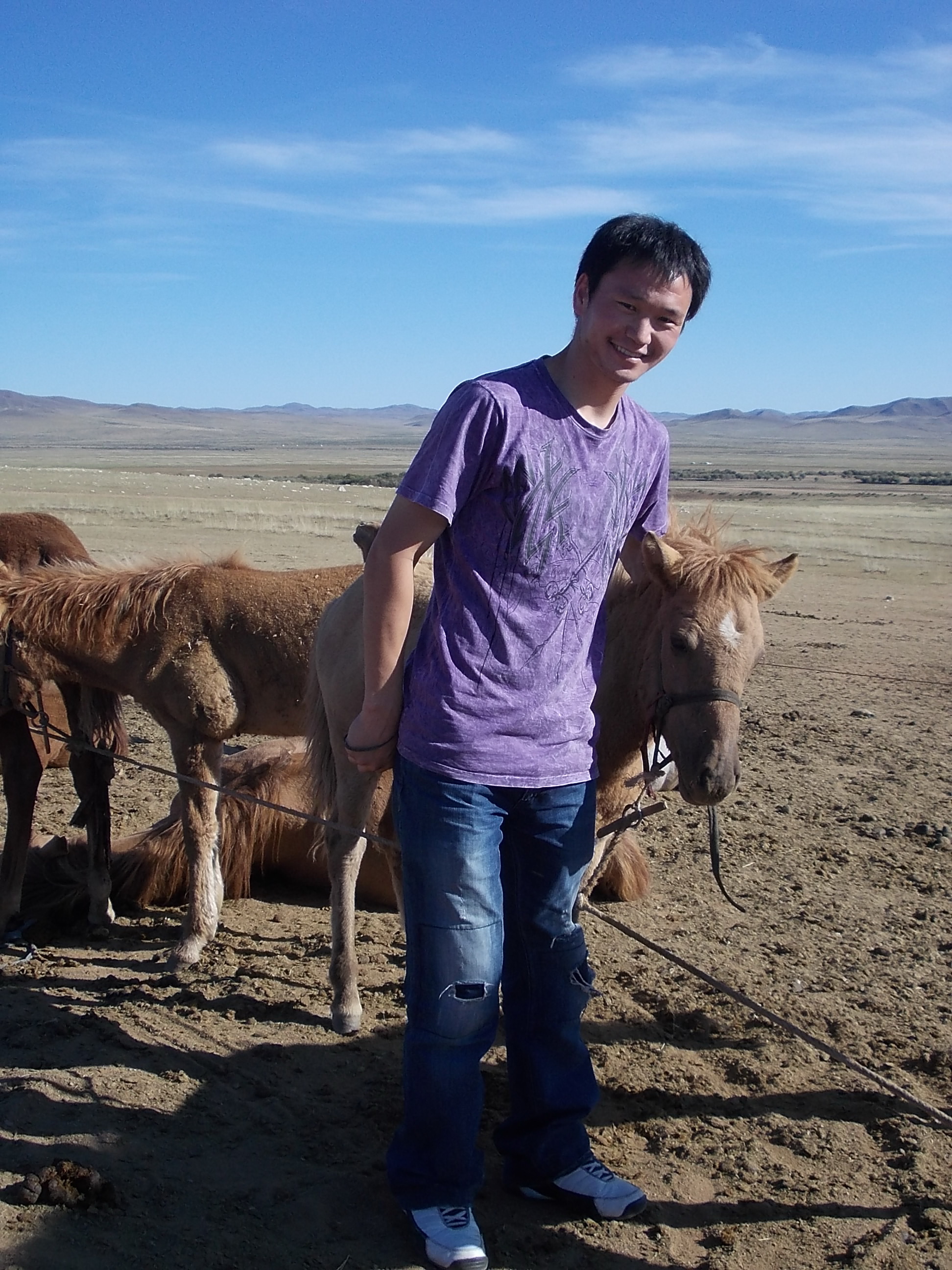
Batbaatar (Baka) Amgaa
PhD (2016 - 2021)
Supervisors: Dr. James Cahill, Jr., Dr. Cameron Carlyle
Sensitivity of forage production in Alberta’s grassland to changes in rainfall: risk assessment and management options
Baka’s research focuses on the effects of grazing systems and drought on plant growth in Alberta’s grasslands along a climate gradient. He is looking at how above and below ground plant biomass responds to grazing and drought. Baka is interested in determining whether grazing management practices can minimize the impacts of drought on forage production. Baka successfully defended his thesis on December 10, 2021.
Email: amgaa@ualberta.ca
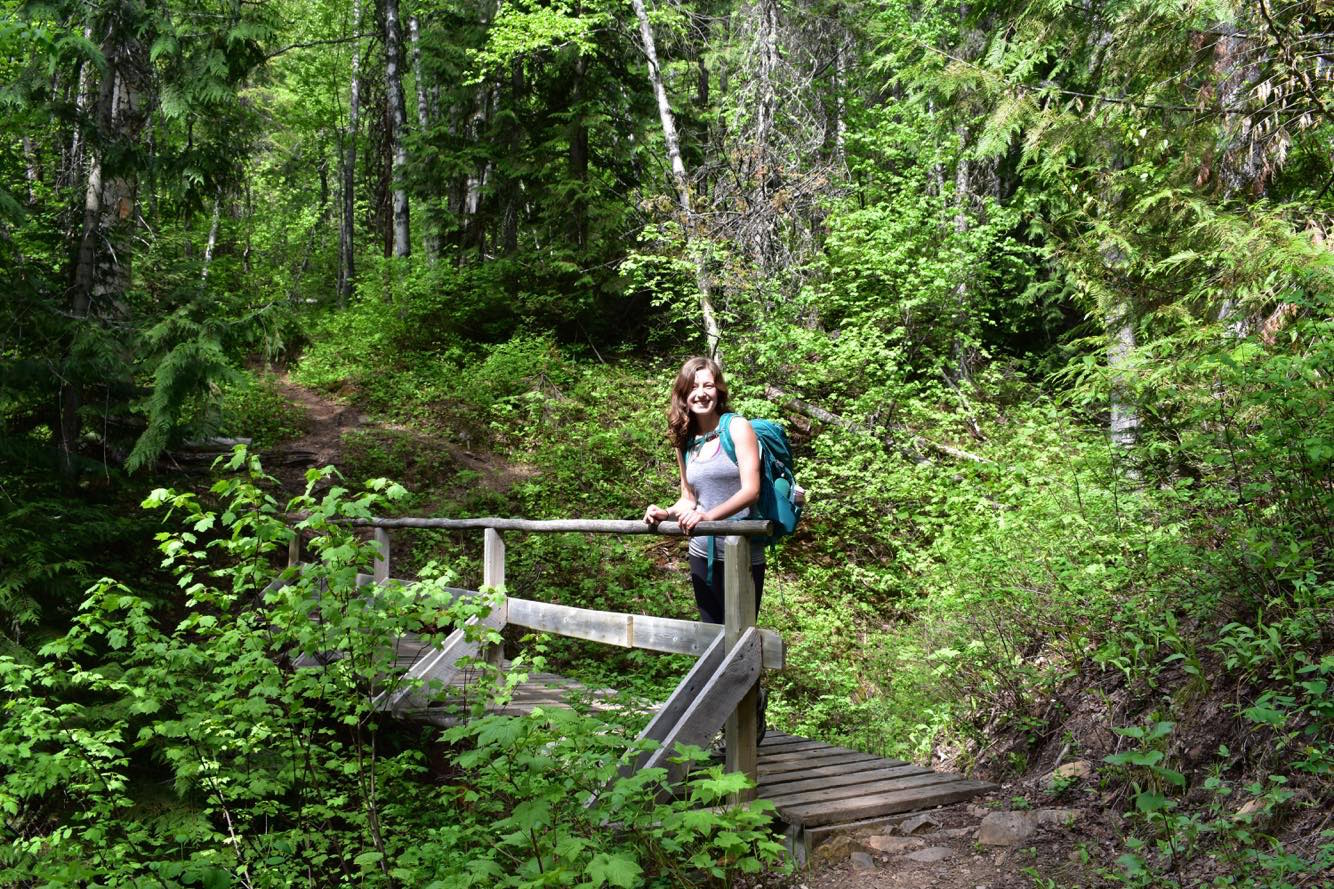
Sara Barszczewski
MSc Rangeland and Wildlife Resources (2017 - 2019)
Supervisors: Dr. Cameron Carlyle, Dr. Xiying Hao
Impacts of litter removal and seasonal clipping and compaction on soil and vegetation in southern Albertan rangelands
Soil health is a vital component in ecosystem goods and services (EG & S) within grassland ecoregions; it affects EG & S such as nutrient cycling, carbon sequestration, and vegetative growth. Adaptive multi-paddock (AMP) grazing systems, which use high stocking rates for a short period of time, have claimed to restore grasslands, but this process remains unclear and the effects are poorly understood between various regions. Sara’s research aims to determine soil and vegetation response to select mechanisms derived from AMP grazing systems along a climate gradient within southern Albertan rangelands. Soil and vegetation response will be determined through analysis of physical, chemical and biological properties of soil, as well as above-ground vegetation. Her research is one of several projects that aim to determine the viability of AMP grazing in the Canadian prairies. Sara hopes that through this study a clearer understanding of grazing mechanism impacts can be reached to improve range health. Sara defended her thesis in December 2019.
Email: barszcze@ualberta.ca
LinkedIn: Sara Barszczewski

Brendan Bischoff
MSc (2018 - 2020)
Supervisor: Dr. Cameron Carlyle
Wildfire recovery in the northern dry mixedgrass prairie
Brendan studied rangeland recovery after wildfire in Alberta and Saskatchewan with a focus on the required length of time for grazing deferment following burn events. Environmental variables studied include plant species composition, plant biomass, litter biomass, and soil quality. This study should aid in appropriate future post-fire management, which could prove beneficial to overall grazing production. Brendan defended his thesis in Dec 2020.
Email: bischoff@ualberta.ca
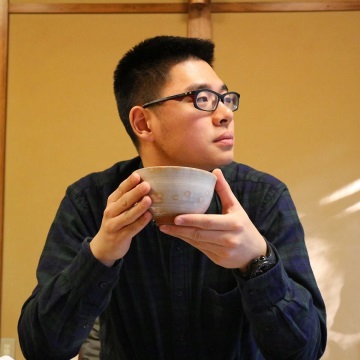
Xiaozhu (Sean) Chuan
MSc (2014 - 2017)
Supervisors: Dr. Edward Bork, Dr. Cameron Carlyle
Response of litter decomposition and microbial enzyme activity to grazing across agro-climatic subregions in Alberta
Sean’s research focused on the effects of anthropogenic activity and environmental factors on grassland ecosystems, particularly nutrient cycling. He used results from field- and lab-based studies to understand how grazing, climate, and litter interact and influence plant and soil microbial communities. Sean is also interested in investigating whether soil microbial communities can be used as biological indicators of environmental change using a statistical modeling. His research contributes to predicting ecosystem function and add knowledge for making improved land management decisions. Sean defended his thesis in April 2017.
Email: xiaozhu@ualberta.ca
ResearchGate: Xiaozhu Chuan
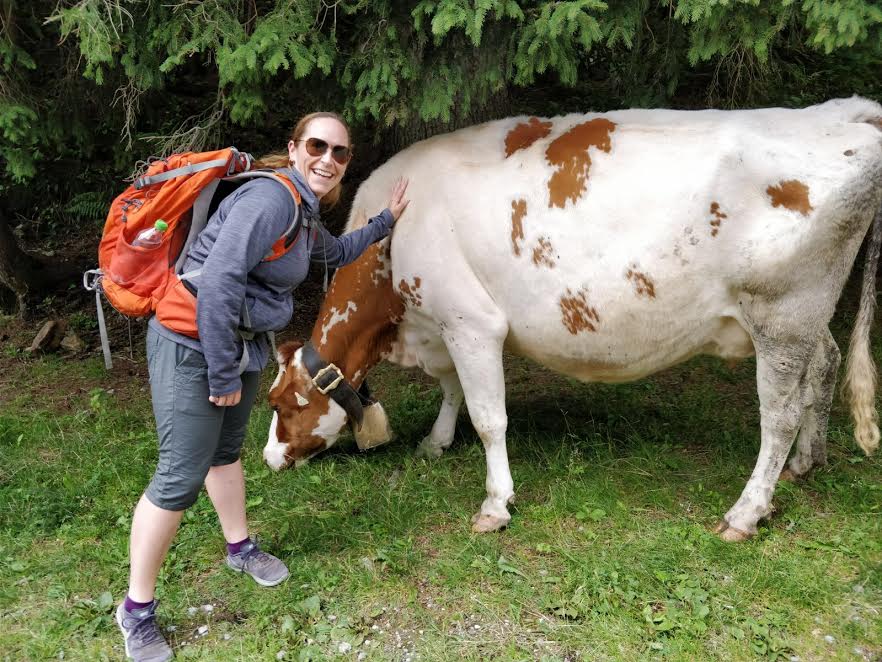
Kristine Dahl
MSc (2017 - 2019)
Supervisors: Dr. Edward Bork, Dr. John Parkins
Different Perspectives on Grazing Management and Range Health Outcomes by Beef Producers in Alberta, Canada
Kristine’s research involves a relatively novel approach to rangeland research, in that she is investigating if beef producers personal perspectives on grazing management affect range health outcomes on their land. This is a unique, inter-disciplinary study using interview as well as range health data to compare producers’ values to landscape health. This research is also unique in that participants are producers using any method of grazing management, from holistic managers to continuous grazers, and the spectrum of grazing between, to represent an overall picture of what grazing and range management look like in Alberta. Kristine has ranches participating across Alberta, with sites from Athabasca south to Milk River, in five different Natural Regions. Kristine defended her thesis in January 2019.
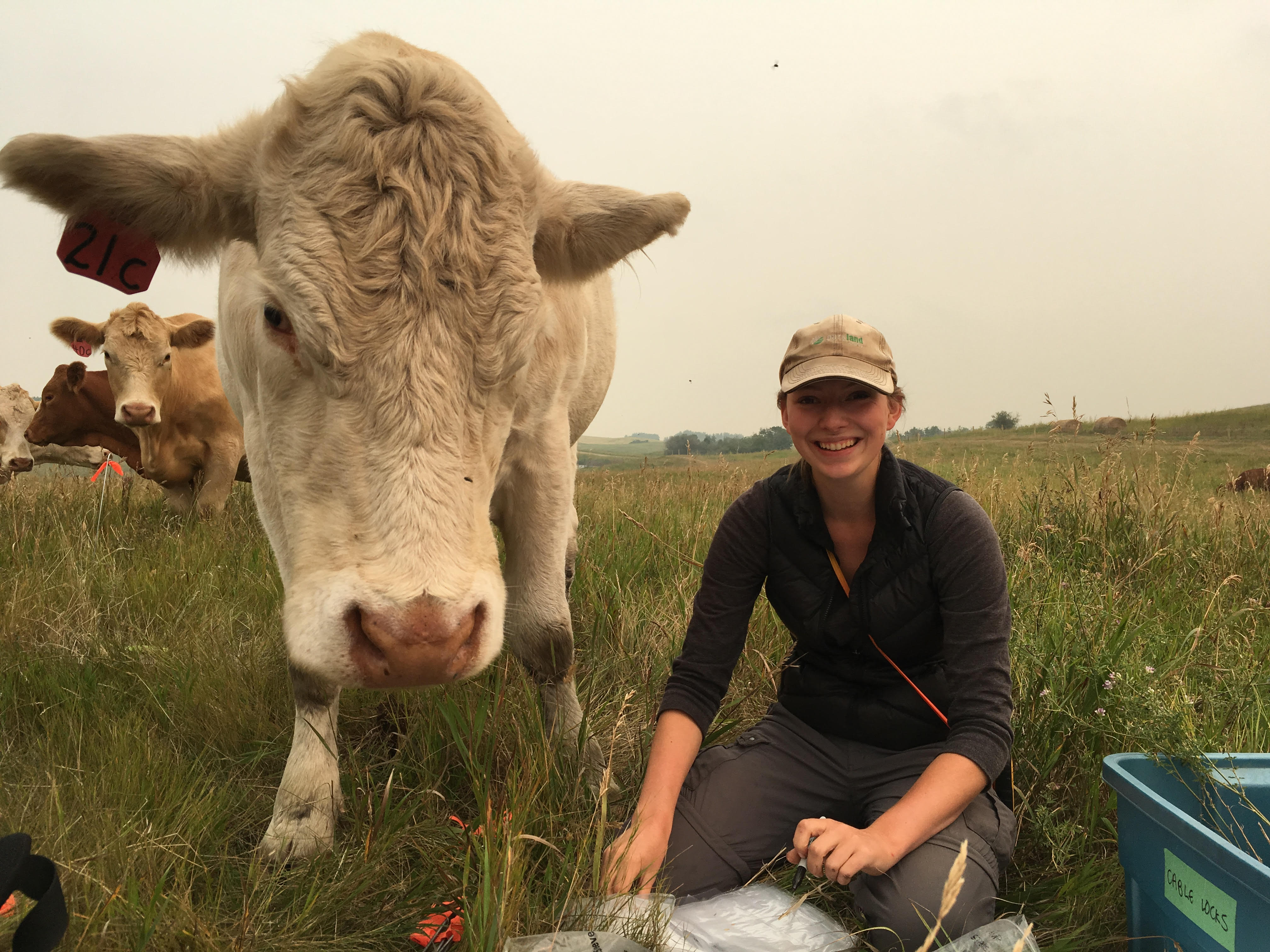
Jessica S.J. Grenke
PhD, Ecology (2017 - present)
Supervisors: Dr. James Cahill, Jr., Dr. Mark Boyce
Grassland soil organic carbon, greenhouse gas emissions, water infiltration and biodiversity under grazing management practices in Canadian grasslands
Grasslands are key providers of global biodiversity; food security through livestock production; and climate change mitigation through soil carbon storage. However, the relationship between grassland management, biodiversity, and soil carbon sequestration is poorly understood. As part of a team investigating how soil carbon dynamics relate to rangeland management, Jessica is investigating plant community characteristics. From 2017-2019 plant community metrics including biodiversity will be collected from private ranches across western Canada. Results will be used to inform governmental ecological goods and services policy.
Email: grenke@ualberta.ca
ResearchGate: Jessica Grenke
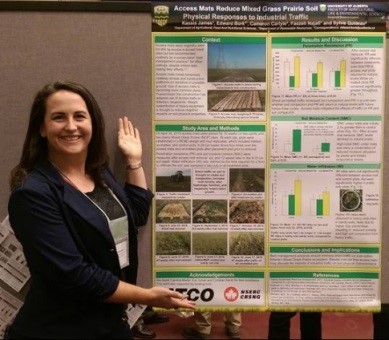
Kassia James
MSc (2015 – 2018)
Supervisors: Dr. Edward Bork, Dr. Cameron Carlyle, Dr. Sylvie Quideau
Effects of access mats on Mixedgrass Prairie soils and vegetation
Kassia is interested in finding best management practices to keep industrial projects moving forward while assisting private land owners and public lands managers with maintaining the integrity and productivity of their land base. Her research assesses the use of access mats as a mitigation technique during construction of industrial projects. In different soil types, sandy or loamy texture, her research focuses on the impacts of construction mitigation methods used during the growing season in the Mixedgrass Prairie in Alberta on the associated grassland vegetation communities and soil physical properties. Kassia defended her thesis in October 2018.
Email: ksjames@ualberta.ca
LinkedIn: Kassia James
Twitter: @Range_Nerd

Upama K C
PhD (2017 - present)
Supervisor: Dr. Cameron Carlyle
Soil microbial community response to different grazing system in the Canadian Prairies
Soil microbes are a vital component of grassland ecosystems and play a major role in Carbon (C) and Nitrogen (N) cycling and can affect forage production and greenhouse gas emissions from soil. Livestock grazing can affect the soil microbial community by changing the vegetation, physicochemical properties of soil and microclimate. However, the effect of different grazing systems on the soil microbial community has not been extensively studied, especially in the Canadian Prairies. Adaptive multi-paddock grazing (AMP), where livestock are grazed at high densities in small paddocks, has been proposed to increase soil carbon. Upama’s main research objective is to characterize the soil microbial community and link them to differences in C and N cycling under Adaptive Multi-paddock (AMP) and continuous grazing (CG) systems. Sampling will be done in ranch pairs throughout Alberta, Saskatchewan and Manitoba. Thus, the study will provide a comprehensive analysis of microbial community composition and response of specific functional groups under AMP and CG grazing system in the Canadian prairie. She anticipated that the findings of this study will improve our understanding of carbon cycling in response to grazing management and can provide important guidelines for ranchers and policymakers to encourage practices that will offset atmospheric climate change.
Email: upama@ualberta.ca
Personal Website: https://blogs.ubc.ca/upamakc/
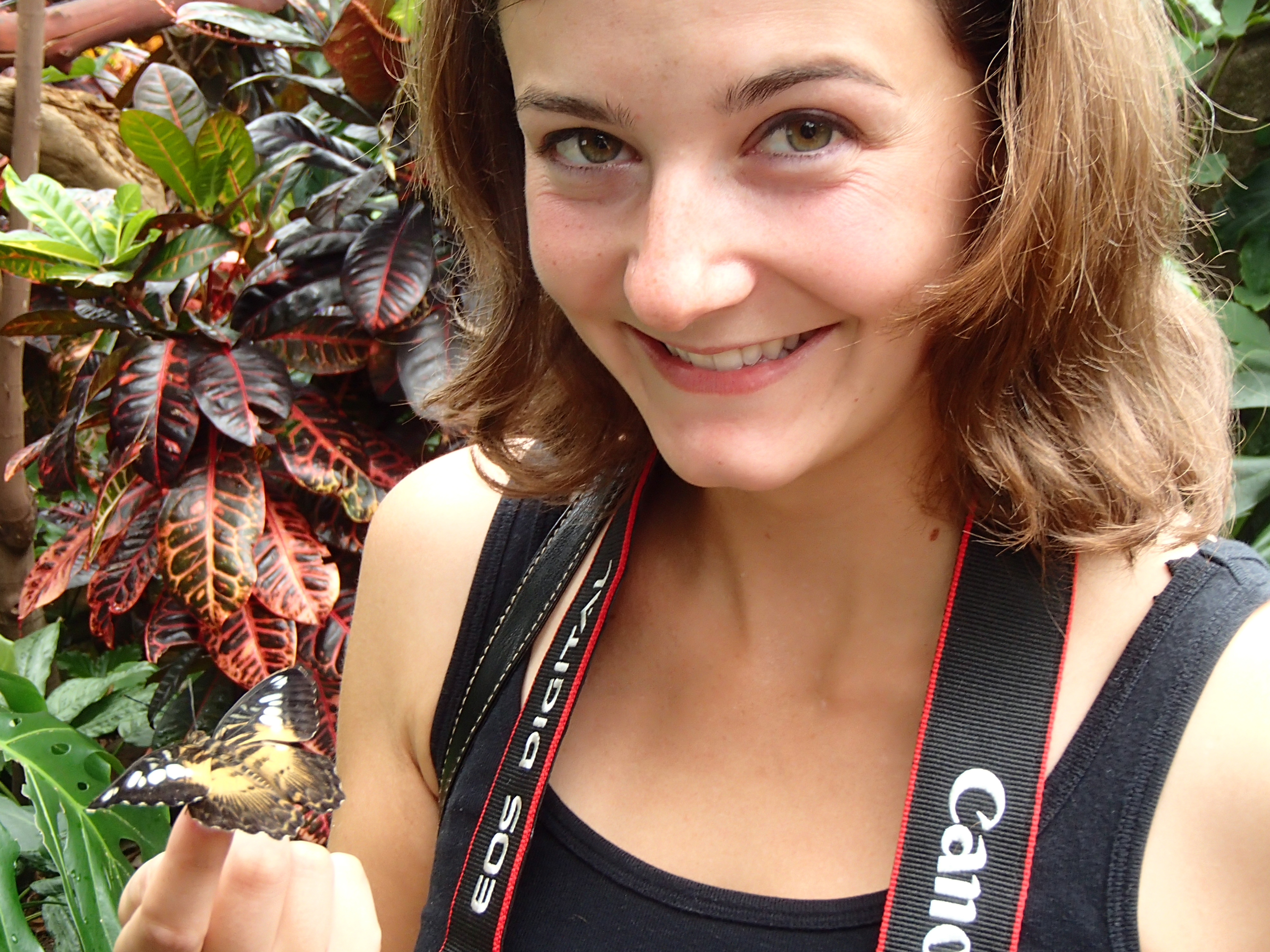
Monica Kohler
MSc (2013 - 2017)
Supervisors: Dr. Jessamyn Manson, Dr. Cameron Carlyle
Native bees communities in Alberta’s agro-ecosystems
Monica is part of a research team that conducted a large scale survey of native bee communities in canola fields and native rangelands across Alberta’s agricultural zone. Her research questions examine how bees are responding to these two different land uses, and to different habitat features on the landscape. Monica defended her thesis September 2017.
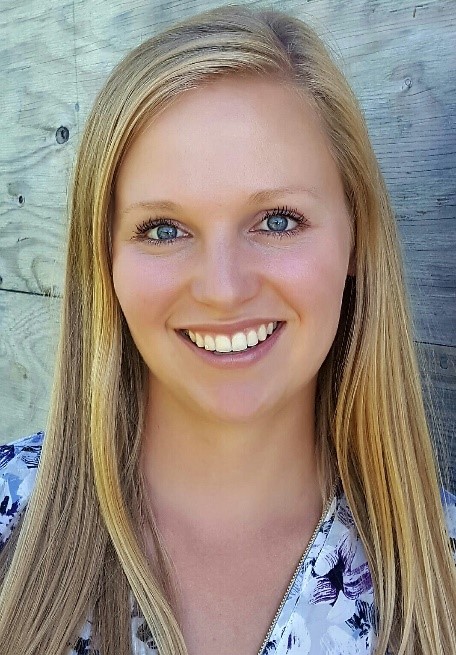
Nicky Lansink
MSc, Animal Science (2015 - 2017)
Supervisors: Dr. Edward Bork, Dr. Graham Plastow
Selecting for residual feed intake under extensive cow/calf production systems
Nicky is studying the performance of residual feed intake (RFI) selected cattle under extensive cow/calf production systems. She is specifically looking at body weight gain, pregnancy status, and changes in backfat of high and low RFI cattle under open range conditions. The study also involves analysis of methane production from heifers, divergently selected for RFI, on pasture and in drylot. The ultimate goal of her study is to make beef production more efficient and sustainable. Nicky defended her thesis October 2017.
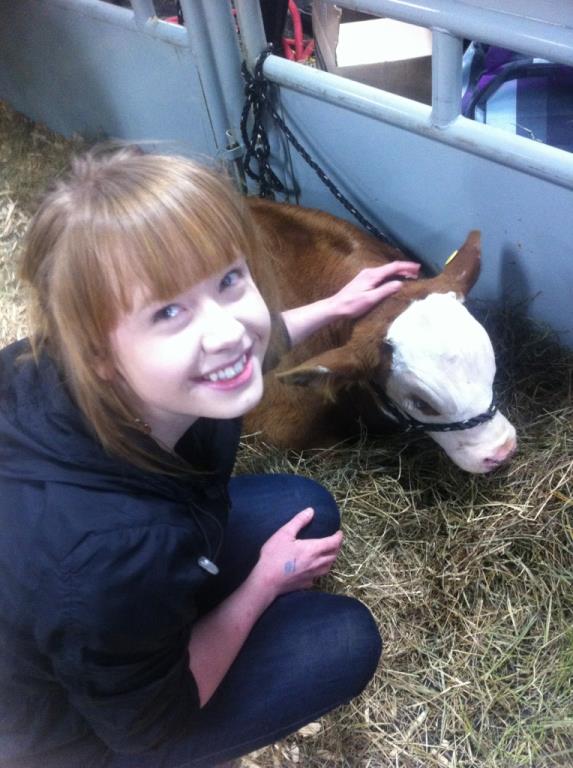
Megan Lewis
MSc, Rangeland and Wildlife Resources (2018 - present)
Supervisors: Dr. Cameron Carlyle, Dr. Diane Haughland
Resolving taxonomic uncertainty in Cladonia grassland lichens to evaluate grazing effects on biological soil crust biodiversity
Megan’s research focuses on grassland lichen taxonomy and effects of grazing on biocrust lichen communities. Lichens are major components of biocrusts, which perform critical functions in grasslands, such as reducing soil erosion, preventing invasive species establishment, contributing to soil fertility, and contributing to carbon cycling. Because biocrusts are so critical to grassland ecosystem function, it’s important to understand how they may be affected by grazing management systems and changes in climate.
Taxonomy for some lichens within biological soil crusts is uncertain, which hamper our ability to evaluate community-level responses or calculate commonly-used comparative metrics such as species richness or diversity. Megan seeks to address this issue through clarifying species concepts in the Cladonia symphycarpa group through molecular DNA sequencing, as well as examining morphological and chemical traits. Cladonia are particularly abundant and often dominate sites in Alberta’s grasslands, but are challenging to identify, and it is unclear if the species described within this group represent different evolutionary lineages, phenotypic plasticity within one species, or something in-between. Following taxonomic resolution of this group, Megan is interested in examining biocrust response to simulated drought and grazing in mixedgrass, dry mixedgrass, and aspen parkland grasslands in Alberta. This research will provide insight into grassland resiliency to changes in climate and will have important implications on conservation and land management strategies.
Email: mclewis@ualberta.ca
LinkedIn: Megan Lewis

Caroline Martin
MSc (2016 - 2018)
Supervisors: Dr. Scott Nielsen, Dr. Edward Bork
Breeding songbird responses to roads and powerlines in the grasslands of Southeastern Alberta
Linear disturbances in grassland systems, including powerlines, roads, and pipelines, have led to fragmented landscapes, soil degradation, and declines in sensitive species. Grassland birds, in particular, have undergone steep declines in populations due to the loss and degradation of grassland habitat. The construction of a major new transmission line in Southeastern Alberta in 2014 provides a unique opportunity to determine the direct effects of powerline construction on songbird species by comparing baseline pre-construction data from 2012 and 2013 to data from 2016 following transmission line development. Caroline is interested in determining how powerline construction affects species richness and species-specific responses. Her analyses looks at how community structure changes with disturbance and makes comparisons between years to evaluate the direct effect of powerline development in grassland habitats on songbirds, and what might be done to mitigate the effects of future transmission line developments on grassland songbirds. Caroline defended her thesis in May 2018.
Email: cjm2@ualberta.ca
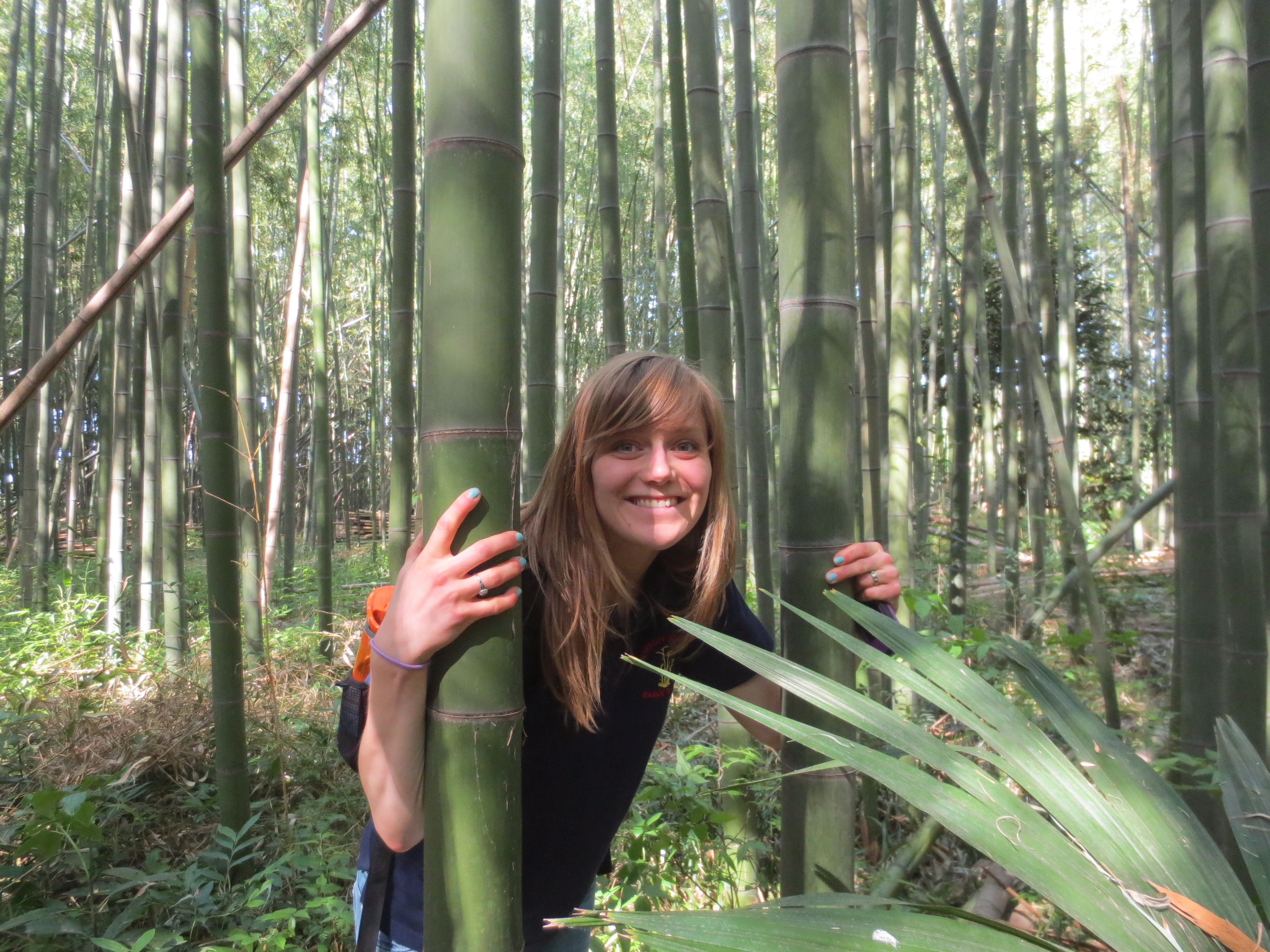
Carly Moore
MSc (2014 - 2018)
Supervisors: Dr. Edward Bork, Dr. Graham Plastow
Exploration of residual feed intake on pasture based systems
Carly is studying the effect that grazing behaviour and cattle movement in pasture has on cattle feed efficiency. The project is based at the Mattheis Ranch using commercial cattle from Gemstone Cattle Company. She used pedometers and GPS collars to track cattle movement during the 2015 grazing season and is currently in the data analysis and writing phase of her project. She looks forward to sharing her results with researchers and producers in the industry and discussing the implications her findings will have for rangeland management. Carly defended her thesis in March 2018.
Email: cah@ualberta.ca
LinkedIn: Carly Moore

Faezeh Najafi
MSc (2015 – 2018)
Supervisors: Dr. Edward Bork, Dr. Cameron Carlyle
Impacts of high voltage powerline construction on Dry Mixed Grass Prairie
Faezeh studied the response and recovery of plant communities resulting from different powerline tower construction methods and subsequent restoration techniques at Mattheis Ranch. She assessed the effects of using heavy equipment and access mats on vegetation and soil biophysical characteristics. Her research will help to evaluate short term recovery of native grassland and determine beneficial management practices (BMPs) that aid the recovery of vegetation and soil. Faezeh defended her thesis in July 2018.
Email: Faezeh@ualberta.ca
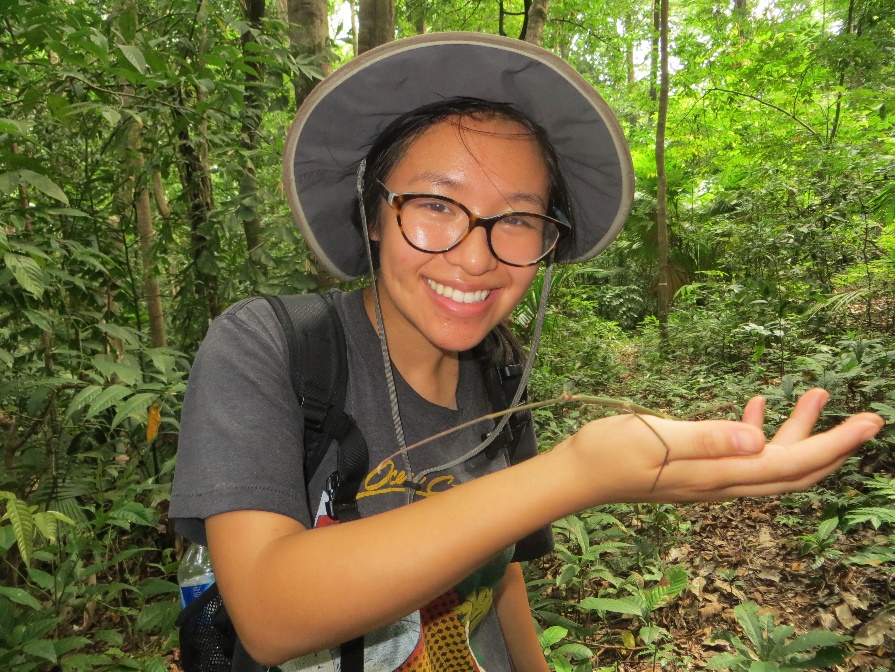
Angela Phung
MSc (2014 – 2017)
Supervisors: Dr. Cameron Carlyle, Dr. Jessamyn Manson
Understanding effects of herbivory on plant-pollinator interactions
Herbivory can lead to trade-offs between plant growth and reproduction, which can be mediated by the timing and intensity of defoliation. Angela studied how the timing and intensity of grazing affect the growth and reproduction of cicer milkvetch, a large flowering plant introduced from Europe that is commonly used in pastures. Secondly, Angela looked at how grazing affects floral resources available to pollinators, pollinator visitation, and subsequently plant reproduction. Studying these interactions is important considering declines in pollinator diversity and abundance, which may affect native plant populations. Pollinators also help maintain flowering forage plants that support livestock in rangelands. Angela is also interested in the how the density of cicer milkvetch may affect pollination of native plants. Angela defended her thesis in January 2017.
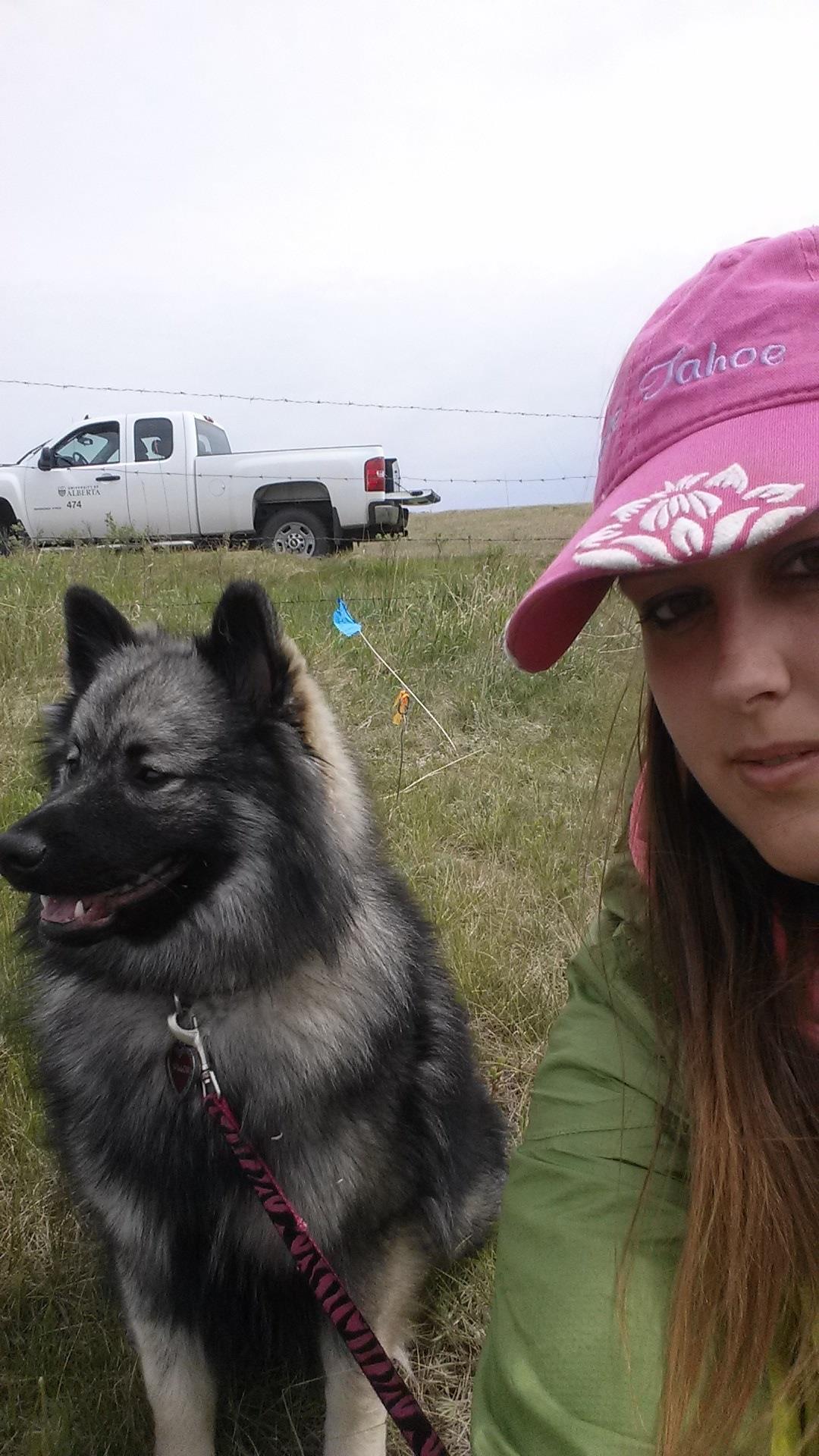
Lysandra A. Pyle
PhD, Rangelands and Wildlife Resources (2012 - 2018)
Supervisors: Dr. Edward Bork, Dr. Linda Hall
Influence of disturbance on grassland seed banks in the Aspen Parkland and Dry Mixedgrass Prairie
Lysandra studied grassland seed bank composition under a variety of disturbance regimes that affect plant community composition and productivity. Her areas of research focus included quantifying the effect of disturbance legacies (i.e. pipelines, cultivation, fire, etc.) and producer management (i.e. grazing, inputs, etc.) on seed banks, plant communities, soils, and rangeland health. Lysandra defended her thesis in April 2018.
Email: pyle@ualberta.ca
Twitter: @GrasslandNerd
Research Gate: Lysandra Pyle

Ahsan Mir Rajper
PhD (2016 - present)
Supervisors: Dr. Cameron Carlyle, Dr. Scott Chang, Dr. Benjamin Willing, Dr. Edward Bork
Tracking shifts in greenhouse gas emissions and soil microbial communities across Alberta’s grasslands caused by different grazing systems under drought conditions
Ahsan is studying the response of microbial communities to drought by reducing rainfall by 45% under simulated grazed and un-grazed conditions. He is also looking at how microbial communities change in response to grazing and drought and the relationship with greenhouse gas emissions.
Email: rajper@ualberta.ca
ResearchGate: Ahsan Rajper
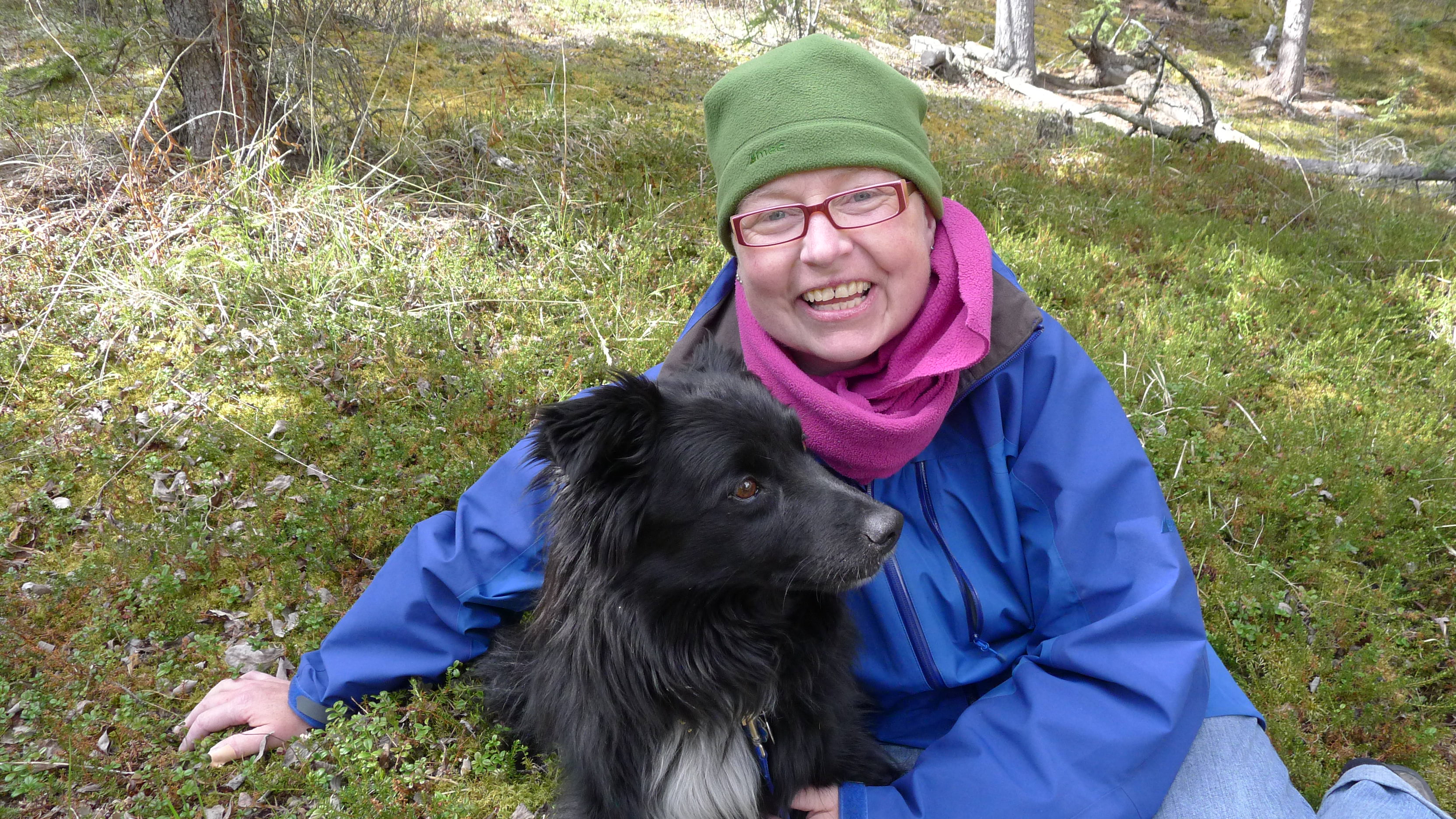
Lori Schroeder
MSc & employed as a Research Assistant (2011 - 2019)
Supervisors: Dr. Ellen Macdonald, Dr. Fiona Schmiegelow, Dr. Edward Bork
Impact of reintroduced wood bison herd on grassland vegetation diversity in Yukon
Lori has been involved in two separate grassland research projects. In the Dry Mixed Grass Prairie (DMG) of southern Alberta (on the Mattheis Research Ranch and in Dinosaur Provincial Park), she researched whether Wet Areas Mapping (a LiDar based, digital elevation model of depth to water) can be used as a landscape-level tool for predicting patterns of invasion of non-native vascular plant species in grassland ecosystems of Alberta as part of a project entitled, Can Wet Areas Mapping (WAM) be used to predict invasive species in Dry Mixedgrass Prairie? Her thesis project, on the other hand, focused on Yukon grasslands and the impact of a reintroduced wood bison herd on plant diversity. These northern grasslands are very different from prairie grasslands in that they occur in small pockets on south-facing hillsides within the boreal forest, yet they share many species and characteristics with the DMG prairie of Alberta. Both projects reflect her interest in unique and rare plant communities, rare species and the conservation of diversity. Together they encompass her love of her northern home, and of the spare, but rich, Dry Mixed Grass Prairie. Lori defended her thesis in June 2019.
Email: ldschroe@ualberta.ca
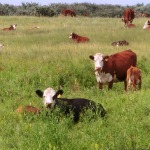
Kate Stolnikova
MSc (2015 - 2018)
Supervisors: Dr. Cameron Carlyle, Dr. Edward Bork
Grazing effects on soil microbial communities and greenhouse gases emission in Alberta’s rangelands
Kate is studying the effects of long-term cattle grazing on greenhouse gas emissions and soil microbial communities in Alberta’s rangelands. The study sites are located along a climate gradient within three natural subregions of Alberta. Her research is focuses on (a) estimating greenhouse gas emissions from rangeland soils using gas collection units and gas chromatography, (b) quantifying soil bacteria and fungi using qPCR and characterizing the soil microbial diversity by next-generation sequencing, and (c) the association of grazing, soil microbial community composition and greenhouse gas emissions. Kate’s project is supported by Alberta’s Livestock and Meat Agency(ALMA). Kate defended her thesis in April 2018.
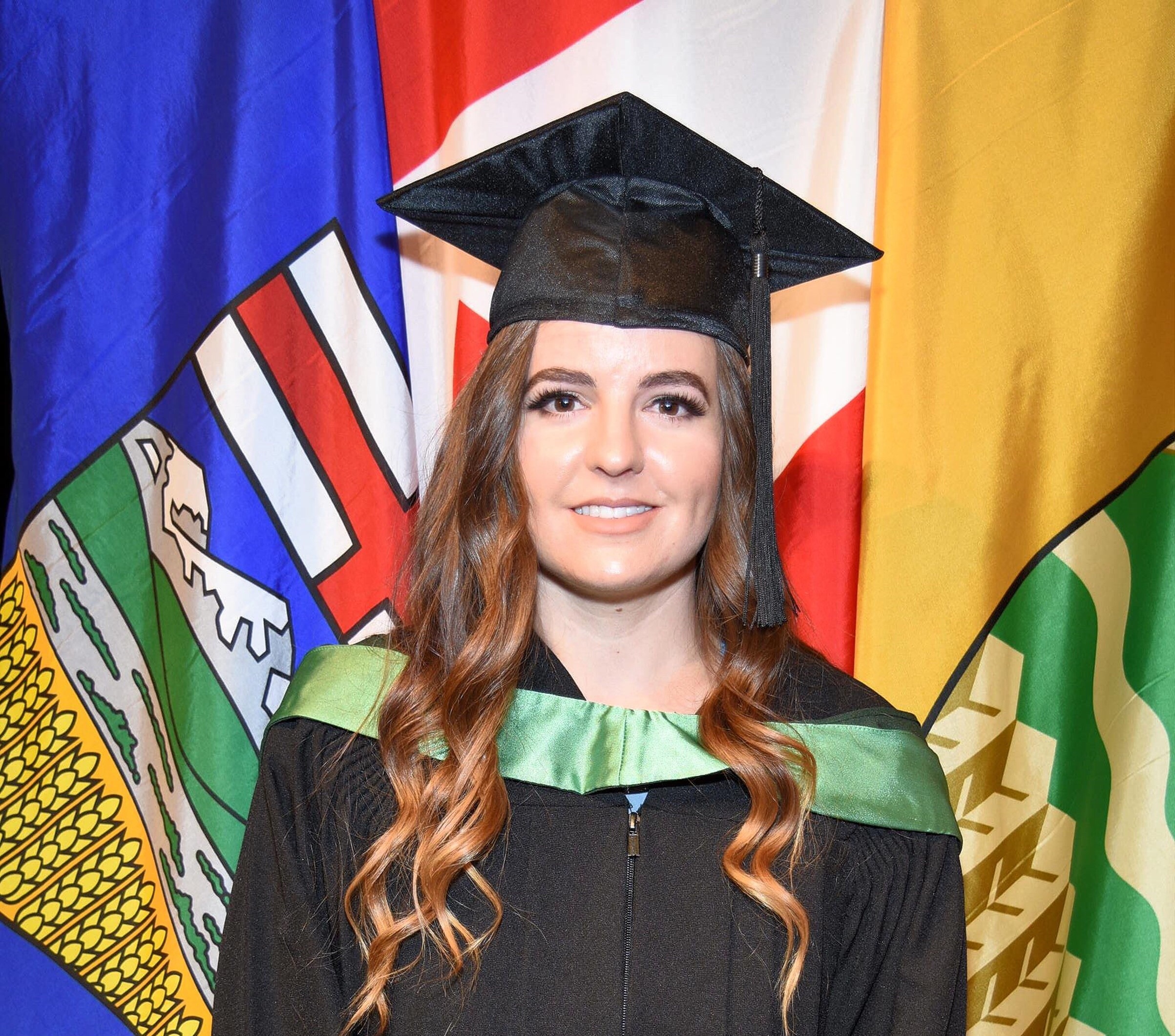
Sydney Worthy
MSc (2018 - 2020)
Supervisors: Dr. Carol Frost, Dr. John Acorn
Interactive effects of managed pollinators on native plant-pollinator networks and native plant reproductive success
Sydney’s research involves the examination of managed pollinators, primarily the European honeybee (Apis mellifera), and their potential effects on native plants and pollinators in southern Alberta. In Alberta, wild bees are understudied and their resources use, which can be studied as a network of plant-pollinator interactions, is poorly understood. The presence of honeybees may cause the loss of specific plant-pollinator interactions or “rewire” networks due to competition for floral resources, and this study will help to shed light on these questions. Sydney defended her thesis in December 2020.
Email: worthy@ualberta.ca
Postdoctoral Researchers
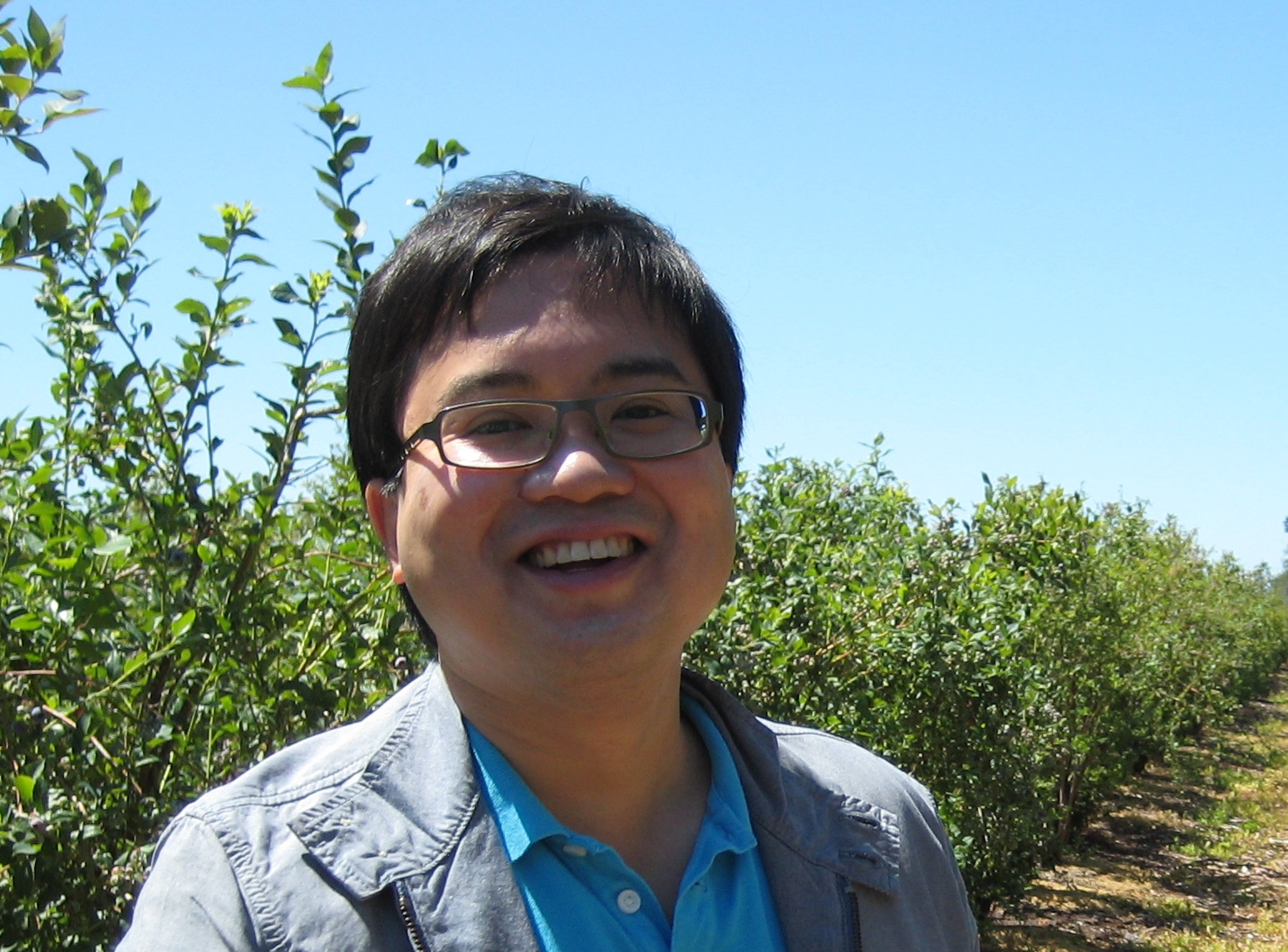
Dr. Tan Bao
Postdoctoral Researcher (2016 - present)
Supervisors: Dr. James Cahill, Jr., Dr. Cameron Carlyle
Biodiversity Assessment of Alberta’s Beef Industry
Dr. Tan Bao is a Postdoctoral Researcher in the Department of Biological Sciences at the University of Alberta in the labs of James F. Cahill, Jr. and Cameron N. Carlyle (Department of Agricultural Food and Nutritional Science). His current work examines the impact of beef production on biodiversity in Alberta as part of an Alberta Biodiversity Monitoring Institute (ABMI) led collaboration between the University of Alberta, Alberta Agriculture and Forestry, Alberta Environment and Parks, Agriculture and Agri-Foods Canada and Alberta Innovates.

Dr. Danielle Maia de Souza
Postdoctoral Researcher (2016 - 2018)
Supervisors: Dr. Edward Bork, Dr. Cameron Carlyle, Dr. Tim McAllister
Biodiversity assessment of Alberta's beef industry
Dr. Danielle de Souza was a postdoctoral research fellow at the University of Alberta, collaborating within the Alberta Livestock and Meat Agency ‘Biodiversity Assessment of Alberta's Beef Industry’ project, working on a framework for incorporating biodiversity in life cycle assessment. She has been an active member of different international research groups with a focus on the improvement of life cycle impact assessment methodologies, such as the FAO Livestock Environmental Assessment and Performance Partnership and the UNEP/SETAC Life Cycle Initiative.
LinkedIn: Dr. Danielle Maia de Souza

Dr. Karen A. Thompson
Postdoctoral Researcher (2016 - 2017)
Supervisors: Dr. Edward Bork, Dr. Cameron Carlyle, Dr. Sylvie Quideau
Mitigating recovery of mixedgrass prairie under high voltage powerline construction
Dr. Karen Thompson graduated from the University of Western Ontario, where she completed an undergraduate thesis that initially interested her in plant-soil relationships. She completed her graduate work at the University of Guelph, where she studied the effects of agricultural management on nitrogen-cycling soil microbial communities with molecular methods. Karen’s research interests include the functional resilience and recovery of soil microbial communities to anthropogenic influences, connecting microbial functioning with process rates, and community responses to climate change. She is particularly interested in the role of soil microbial communities in ecosystem functioning and sustainability, and microbial carbon and nitrogen cycling. Karen is currently working on an NSERC-CRD funded project examining the recovery of mixedgrass prairies under high voltage powerline construction. Specifically, she is studying the recovery and resilience of soil microbial communities after industrial disturbances related to powerline construction, and how changes in these communities relate to mixedgrass recovery under proposed mitigation practices.
Karen accepted a position as Assistant Professor in Environmental and Resource Studies at Trent University in December 2017.
Email: karenthompson@trentu.ca
ResearchGate: Dr. Karen Thompson
Researchers
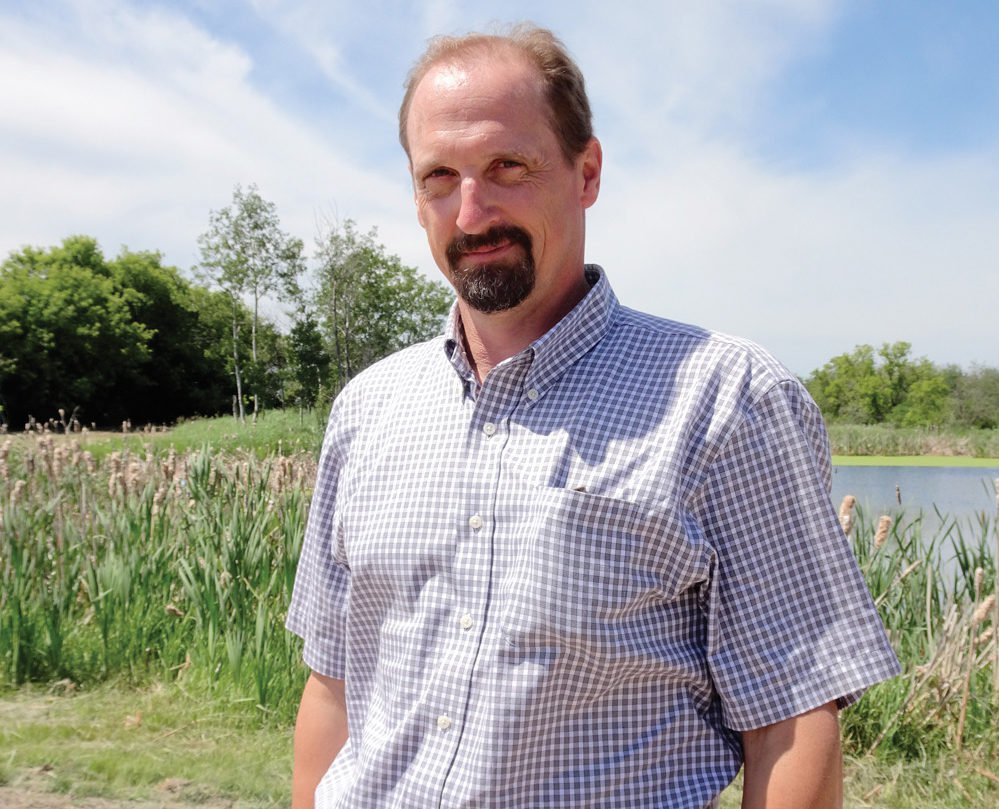
Dr. Edward Bork
Dr. Edward Bork is the Mattheis Chair in Rangeland Ecology and Management and also serves as the Director of the Rangeland Research Institute at the University of Alberta. He has been teaching and conducting rangeland research since 1991 on a wide range of basic and applied topics such as integrated weed control in pasture, grazing systems, fire ecology, forage and legume production dynamics, landscape and disturbance ecology, and more recently, on the importance of grasslands in providing environmental goods and services such as carbon storage. Dr. Bork’s work has had a strong focus on addressing practical problems of high relevance to practitioners managing either private or public rangelands, and has involved extensive collaboration with other researchers and agencies. Both he and his graduate students have given numerous research and extension talks on these topics. Dr. Bork and his family continue to reside on and operate a mixed farm in the Aspen Parkland region of central Alberta, Canada.
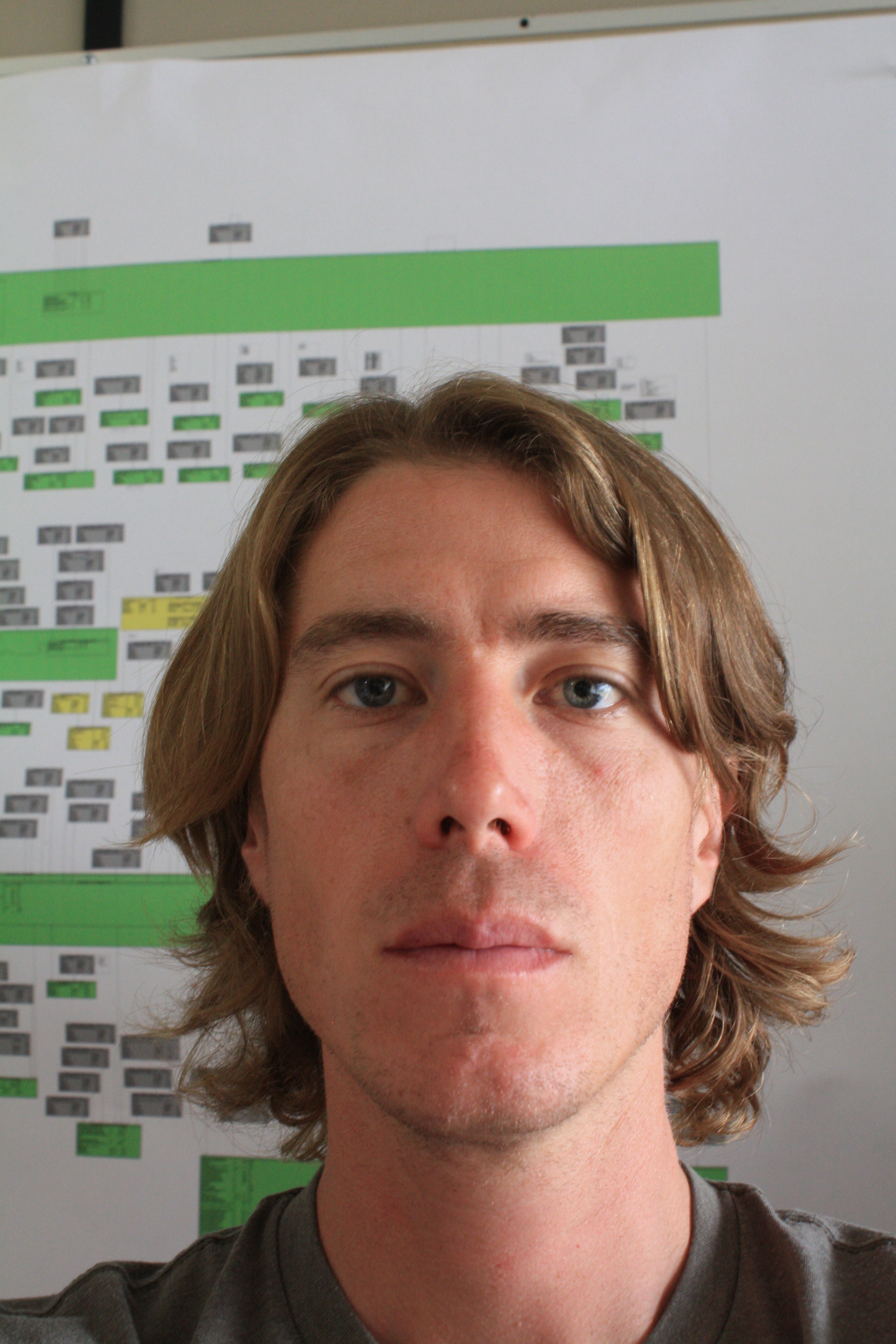
Dr. Tanner Broadbent
Dr. Tanner Broadbent works in the Land Policy Branch of Alberta Environment and Parks. His research addresses policy gaps associated with rangelands and grazing management. Where possible, he works collaboratively, particularly with Agriculture and Agri-Food Canada, the University of Alberta, and the Rangeland Research Institute. Tanner's research interests include plant community recovery following fire, the influence of temperature and precipitation on plant community productivity, the rooting characteristics of prairie plants, and strategies to cope with drought. Tanner had the fortuitous opportunity of being one of the pioneering graduate students at the Rangeland Research Institute.

Darren Bruhjell
Darren Bruhjell is a Senior Forage and Range Specialist with Agriculture and Agri-Food Canada in Edmonton, Alberta. His research interests lie in the areas of forage and range ecology and management. Darren teaches Forage Crops (Plant Science 354) at the University of Alberta.
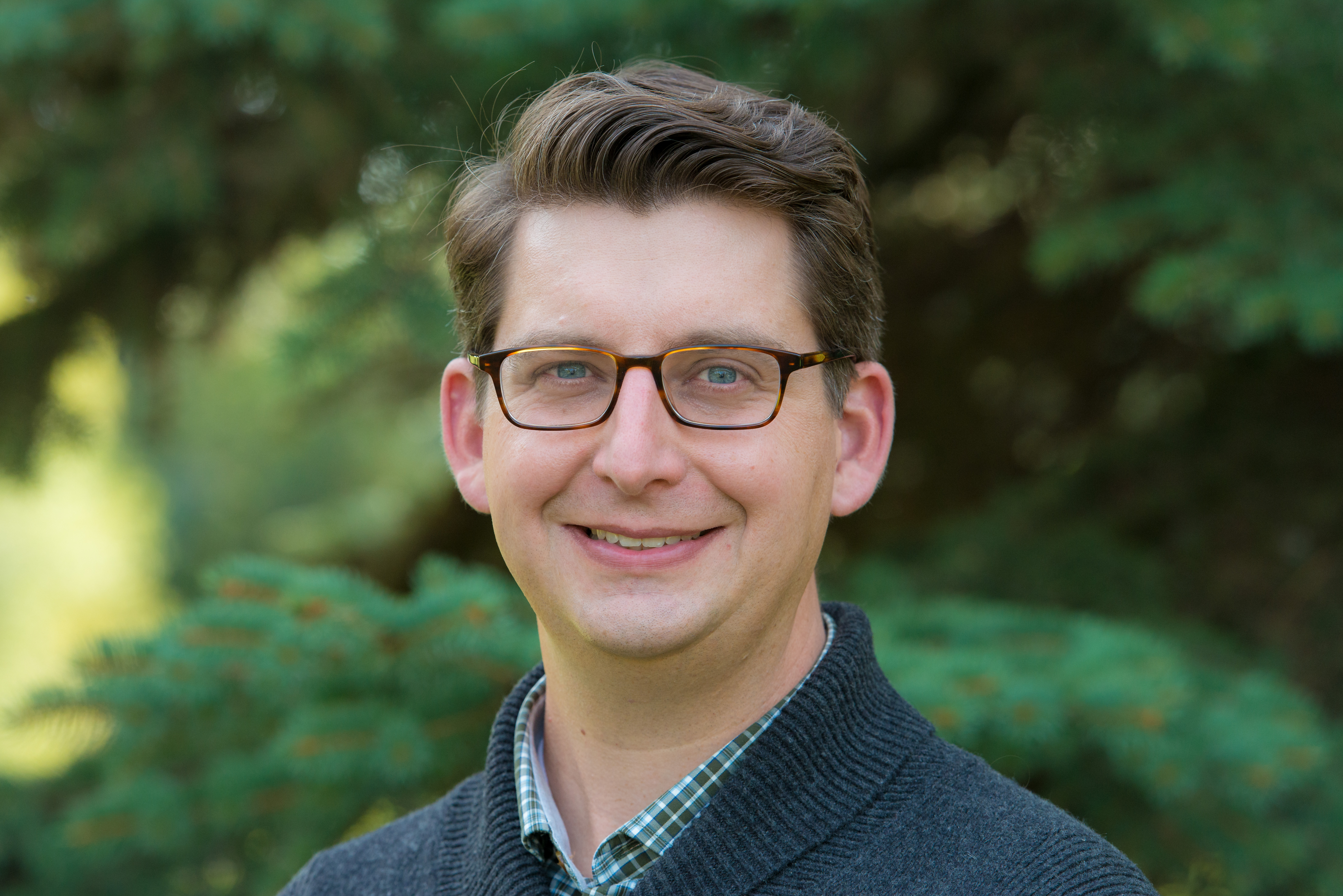
Dr. Cameron Carlyle
Dr. Cameron Carlyle is an assistant professor in the Department of Agricultural, Food and Nutritional Science at the University of Alberta. He completed an MSc at the University of Akron, a PhD in ecology at the University of British Columbia and a postdoc at the University of Alberta. Cameron’s research focuses on ecosystem goods and services in rangelands. In particular, he studies the effects of agricultural land-use and cattle grazing on carbon storage and sequestration, forage production and biodiversity. He uses a variety of research methods including working with land owners to make observations of existing practices, manipulative small-plot field experiments to tease apart important processes and controlled experiments in the lab. The aim of this research is to support grassland conservation, increase sustainable beef production and improve our understanding of the ecological processes in these systems. Cameron also does research on native bees, ants, invasive plants, grassland reclamation, soil health and agroforestry. He teaches courses on rangeland conservation and plant ecophysiology.

Dr. Scott Chang
Dr. Chang has been involved in research related to rangeland ecosystems over ten years. He was a member of an NSERC Strategic grant team (2006-2009) evaluating the impact of global climate change (warming and reduced precipitation) on rangeland ecosystems (plant ecology, litter decomposition, greenhouse gas emissions, and belowground ecology). In a recent project supported by Agriculture and Agri-Food Canada (AAFC), he and his collaborators studied greenhouse gas emissions and carbon sequestration in grazed rangelands in comparison with adjacent forested areas. He has been involved in research on the Mattheis Ranch assessing, 1) the spatial variation/distribution of soil carbon on the ranch and factors affecting soil carbon distribution, 2) the effect of watering and simulated grazing on methane emissions, and 3) the effect of watering and simulated grazing on microbial populations and nitrous oxide emissions.
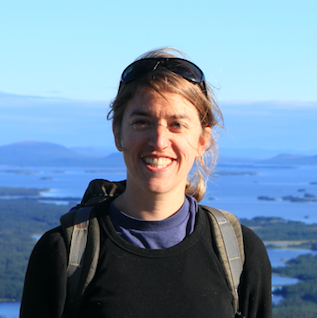
Dr. Carol Frost
Dr. Carol Frost, Assistant Professor of Conservation Biology in the Department of Renewable Resources at the University of Alberta, studies insect community ecology. She completed an MSc at McGill University, a PhD at the University of Canterbury in New Zealand, and a postdoc at the Swedish University of Agricultural Sciences in Umeå, Sweden. In particular, Carol is interested in how anthropogenic disturbances such as land management activities and invasive species impact biodiversity and species interactions, and how these changes to biotic communities in turn affect ecosystem processes, such as nutrient and energy flow through food webs, organic matter decomposition, herbivory, natural enemy control of herbivores, and plant pollination. Carol is currently studying rangeland wild pollinator communities, plant-pollinator interactions, and pollinator community function, as well as how these may be influenced by domestic honeybees.
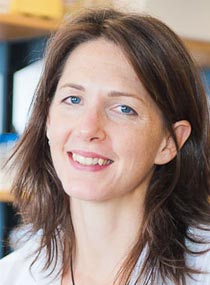
Dr. Carolyn Fitzsimmons
Dr. Carolyn Fitzsimmons is an Assistant Professor at the University of Alberta and a Research Scientist with Agriculture and Agri-Food Canada. Her research interests, with respect to rangelands and grazing, lie in the genetic and physiological differences between cattle. In particular, she studies variation in feed-efficiency, and looks for the underlying genes and physiological pathways that affect the expression of this trait. Differences in feed-efficiency in cattle can have implications for plant material removal from rangelands, and methane/carbon sequestration of rangelands, and overall rangeland heath and productivity.

Dr. Xiying Hao
Dr. Xiying Hao is a Research Scientist with Agriculture and Agri-Food Canada, specializing in soil and nutrient management at the Lethbridge Research and Development Centre. Her research interests focus on: managing cattle manure/compost for soil health, food and animal feed production; reducing greenhouse gas emissions and increasing C sequestration in native and tame pasture; and creating bio-energy from cattle manure and other organic waste/biomass. Dr. Hao and her team develop integrated nutrient and organic residue management practices for sustainable agricultural production. Some of her current research projects include: novel manure/compost for soil health; rangeland soil health responses to stocking rate, litter removal and compaction; diversity and ecosystem function of insects in cattle dung on pastures; influence of management practices on nutrient use efficiency and microbial diversity to support productivity and profitability of Canadian agricultural systems; and limiting losses and improving N efficiency through stabilized N applications.
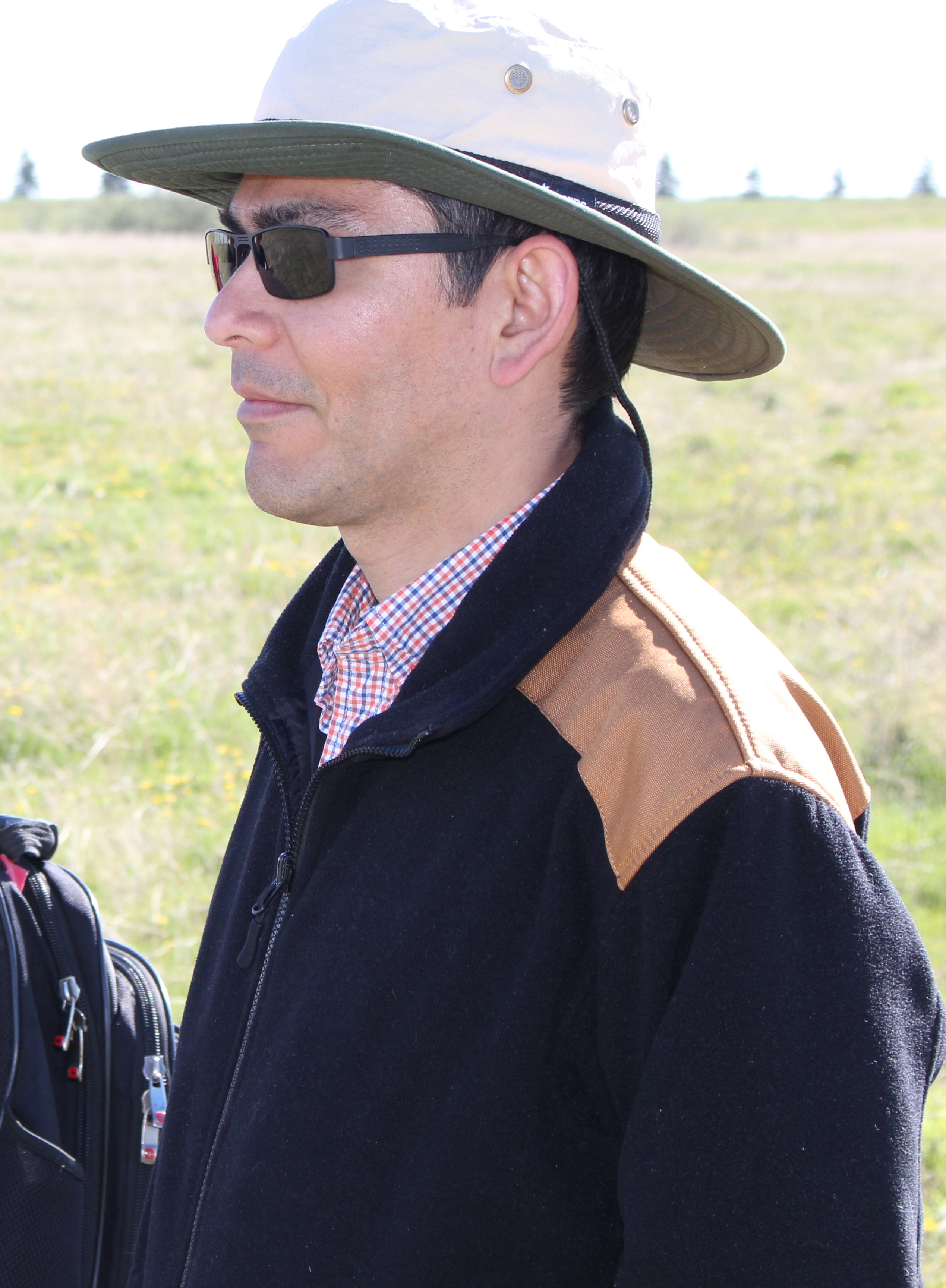
Dr. Guillermo Hernandez Ramirez
Dr. Guillermo Hernadez Ramirez is an Assistant Professor in the Department of Renewable Resources at the University of Alberta. His research interests include: Carbon and nitrogen transformations and fluxes in grassland ecosystems; Integrated assessments of soil carbon sequestration and greenhouse gases exchange in natural reference and managed grasslands; Management options towards greenhouse gas mitigation, climate change adaptation, and enhanced resilience in grassland ecosystems; and Evaluations of soil functions, soil quality and ecosystem services.

Dr. Daniel Hewins
Dr. Daniel B. Hewins is an Assistant Professor of Biology specializing in Ecosystem Ecology at Rhode Island College in Providence, RI, USA. Between the years of 2013 – 2016, Dr. Hewins was a postdoctoral fellow at the Rangeland Research Institute in the Department of Agriculture, Food and Nutritional Science at the University of Alberta in Edmonton, AB, Canada. In this role he worked alongside researchers and government personnel to measure and report the effect of livestock grazing on carbon and nutrient cycling in the grasslands of central and southern Alberta. In 2013, he received his PhD in Ecology from the Biology Department at New Mexico State University in Las Cruces, NM, USA. His dissertation research focused carbon and nutrient cycling in desert grasslands, and in particular the effect of shrub encroachment and associated soil redistribution on leaf litter decomposition.
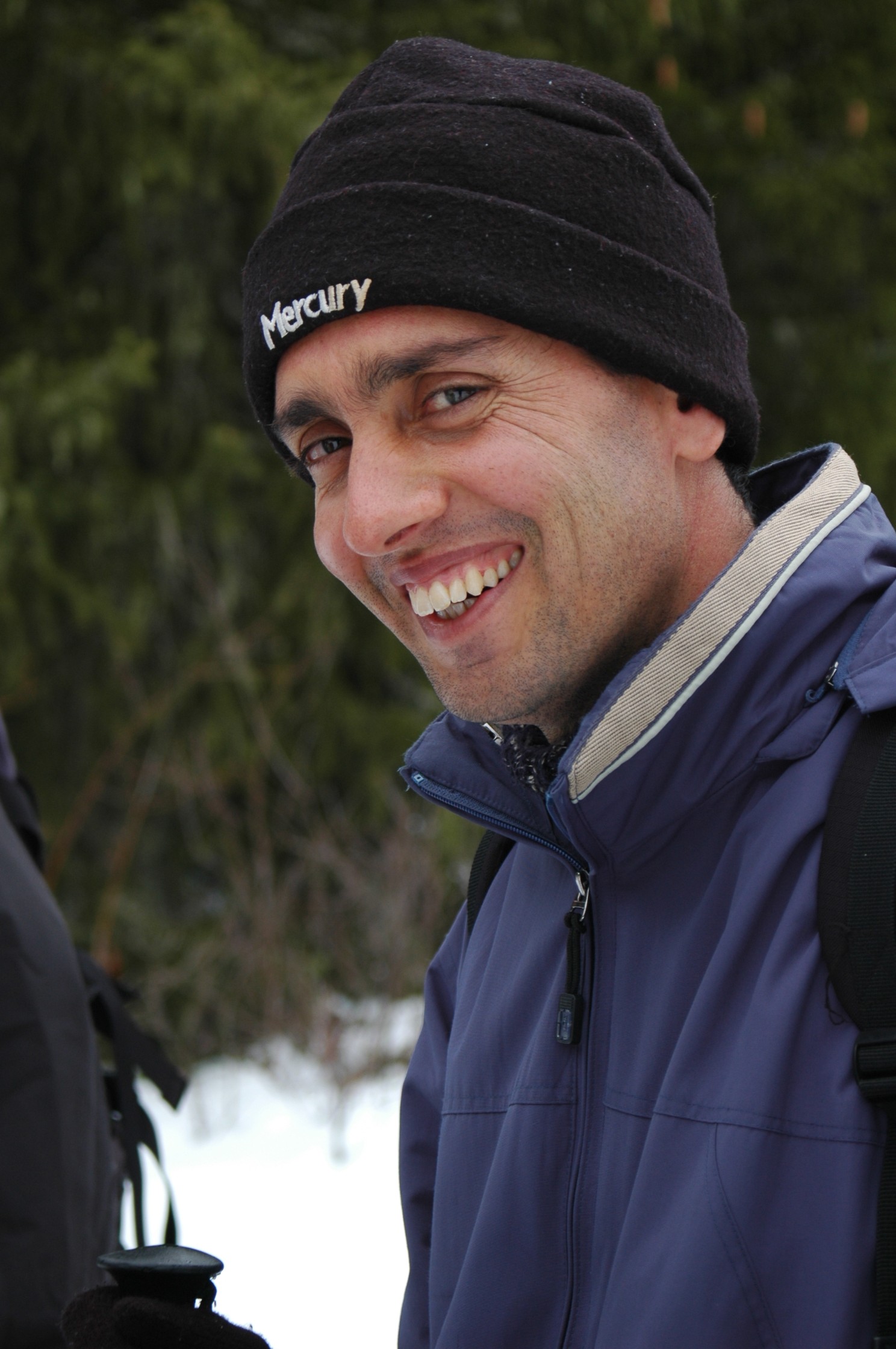
Dr. Majid Iravani
Dr. Majid Iravani has an MSc in Rangeland Ecology and Management (IUT, Isfahan, Iran) and a PhD in Applied Ecology (ETH Zurich, Switzerland). He joined the Alberta Biodiversity Monitoring Institute (ABMI) in Jan 2015 and is currently involved in some applied projects including Ecosystem Service Assessment Project, establishing a set of soil carbon and forage models for Alberta’s rangelands. Majid brings more than 10 years research and teaching experience in rangeland ecology and biodiversity conservation and management. He also has many years of experience with processing, analyzing, interpreting and publishing complex ecological data using R programming language and spatially explicit process-based models. Majid’s main research areas include rangeland ecology, biodiversity and ecosystem services, landscape ecology and ecological modelling.
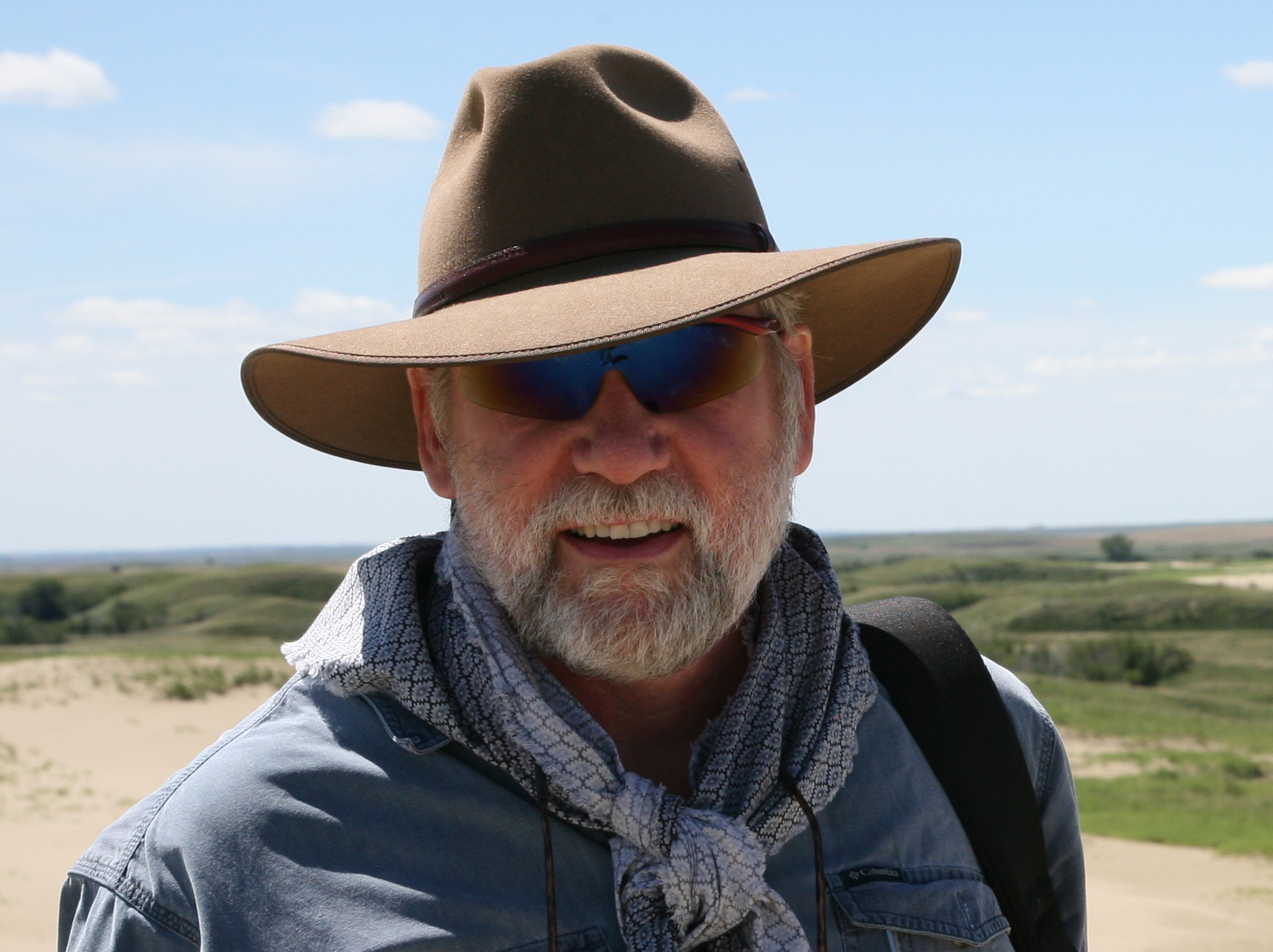
Dr. John W. (Jack) Ives
Dr. Jack Ives is a Professor in the Department of Anthropology at the University of Alberta and the former Director of the Institute of Prairie Archaeology. Now the Institute of Prairie and Indigenous Archaeology under the Directorship of Dr. Kisha Supernant, Drs. Supernant and Ives, work with the Rangeland Research Institute by conducting baseline archaeological research on the Mattheis Ranch in conjunction with its archaeological field school training for undergraduates. This work is intended to provide a comprehensive inventory of archaeological sites on the Ranch, where a variety of sites including intact tipi rings are present. Students also take part in a "simulation curriculum," learning how to find, map, test and report sites to current regulatory standards in Alberta. Excavation experience involves work at a site complex on the southern edge of the Ranch, the camp and processing area for an 1100-1200 year old bison kill on the opposite side of Matzhiwin Creek. Our work involves interaction with Treaty 7 ceremonialists and staging of a "Stones & Bones" event (with the Archaeological Society of Alberta) in which members of the general public are invited to bring in collections for identification and discussion, and to take part in activities like stone tool making and atlatl throwing.
Institute of Prairie and Indigenous Archaeology
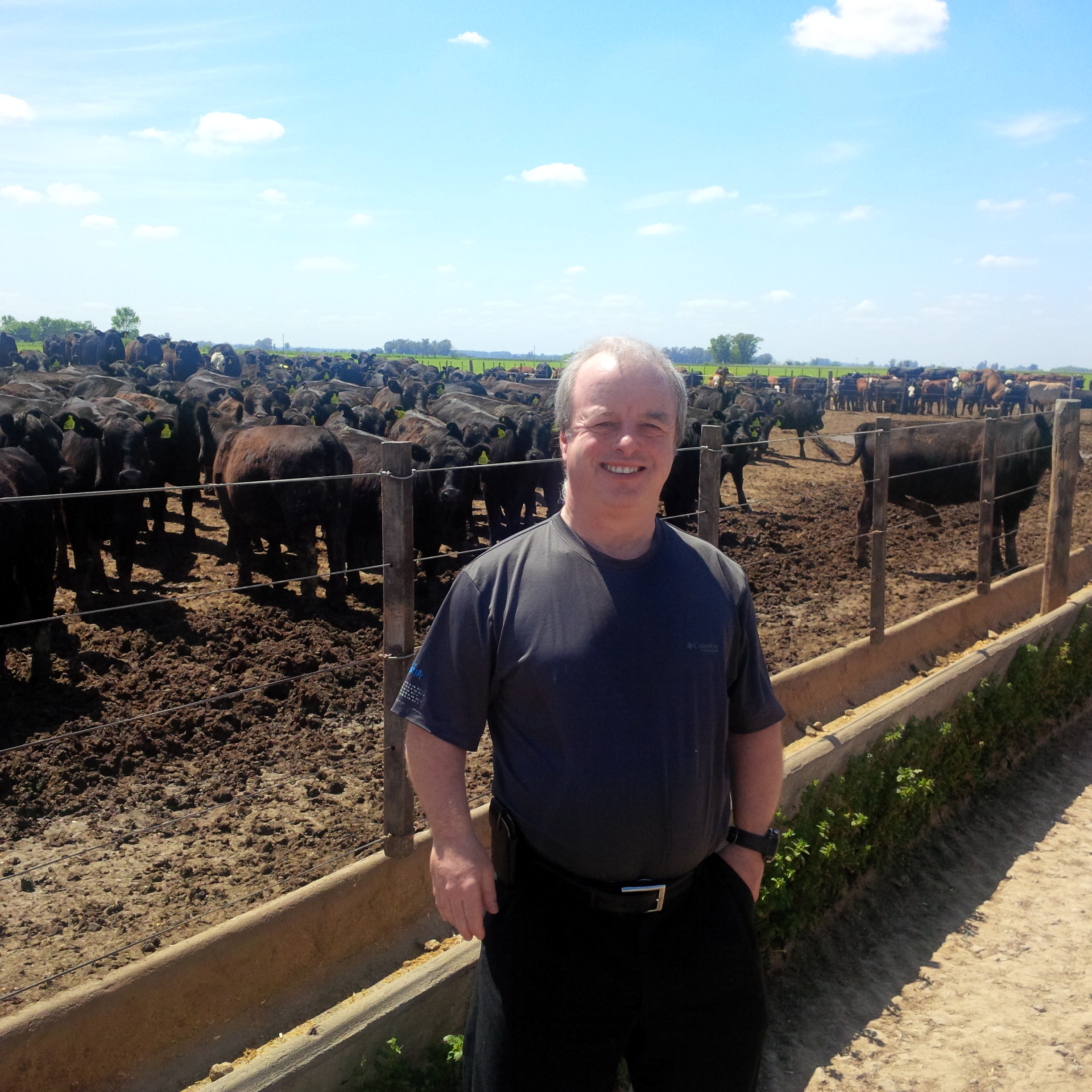
Dr. Tim McAllister
Dr. Tim McAllister is a Principal Research Scientist within Agriculture and Agri-Food Canada in Lethbridge, Alberta. His research program focuses on various aspects of beef cattle production. His interests in rangelands lie in the role that these ecosystems play in carbon capture and storage as well as their contribution to biodiversity. Dr. McAllister has worked extensively as an advisor to the FAO and other nations on the characterization and mitigation of greenhouse gas emissions in beef cattle production systems.
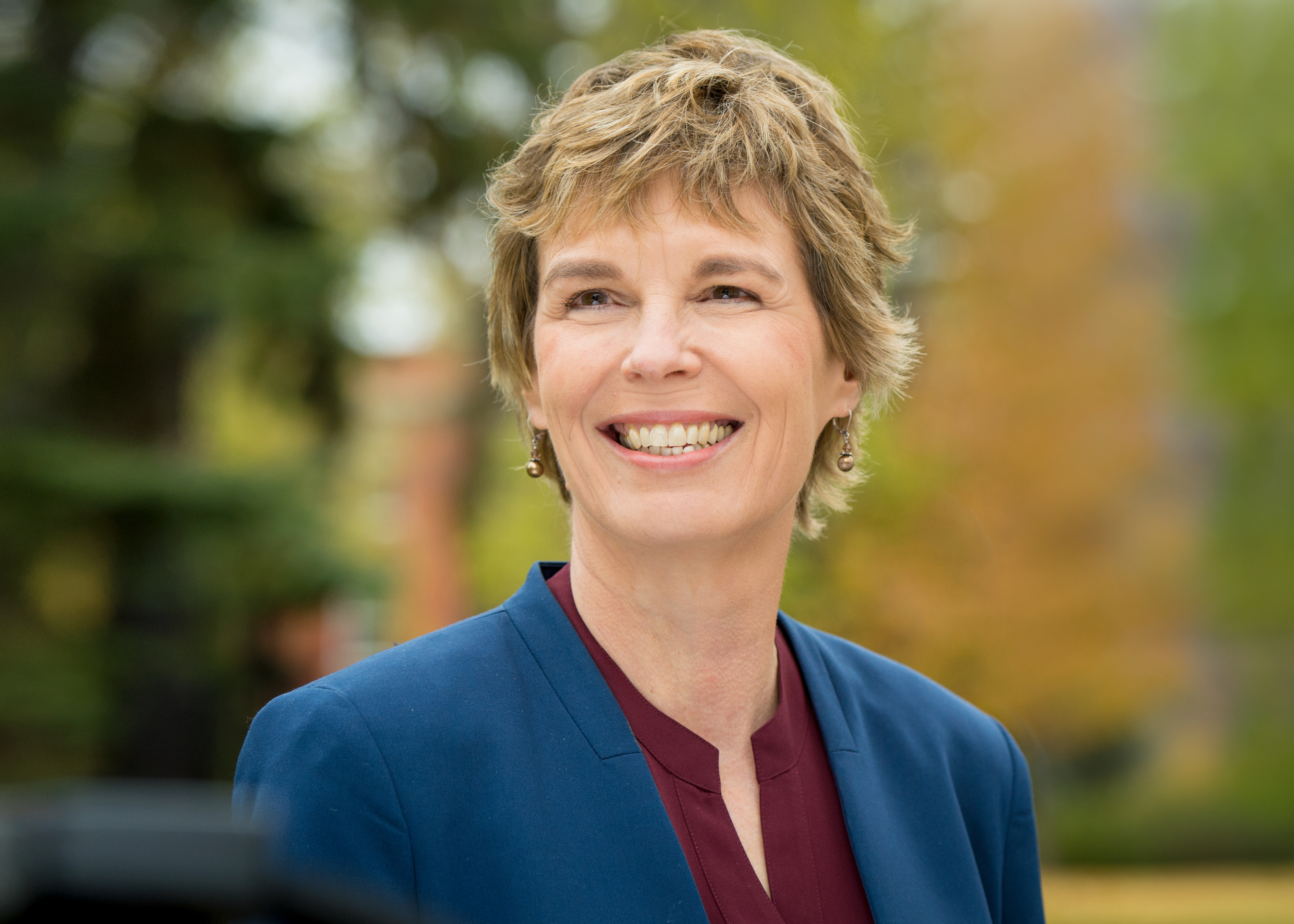
Dr. Ellen Macdonald
Dr. Macdonald is a Professor and Chair of the Department of Renewable Resources at the University of Alberta. She obtained her BSc in Environmental Biology and PhD in Plant Ecology from the University of Calgary. She is interested in factors driving plant community composition and diversity, including the impacts of natural and anthropogenic disturbance. While for the past 25+ years most of her research has focused on the ecology of northern forests, she has also worked in grasslands and in alpine and arctic tundra. She strives to conduct research through which she can apply basic principles of forest ecology to approaches for wise management and conservation of ecosystems.
Dr. Macdonald and Lori Schroeder are conducting research to test whether Wet Areas Mapping (a LiDar based, digital elevation model that produces a metric of relative wetness) can predict invasive species occurrence, and whether it can be used to identify rare, and particularly vulnerable, communities in the dry mixed grass prairie (DMG). Invasive species have been identified as one of the most serious threats to ecosystem health and to the conservation of biodiversity and endangered species, particularly in light of a warming climate. The rate of invasion of non-native species into ecosystems, however, often exceeds our ability to document their presence and, thus, protect vulnerable ecosystems. Wet Areas Mapping has been proposed as a landscape-level tool for predicting patterns of invasion of non-native vascular plant species in grassland ecosystems of Alberta. Simultaneously, they are examining impacts of disturbance on invasive species occurrence - including grazing and disturbance associated with pipelines, roads, wellsites and transmission corridors.

Dr. M. Anne Naeth
Dr. Anne Naeth is a Professor of Land Reclamation and Restoration Ecology in the Department of Renewable Resources and Associate Dean of Research and Graduate Studies at the University of Alberta. She is also Director of the Land Reclamation International Graduate School (LRIGS). Dr. Naeth’s expertise is in land reclamation and restoration ecology. In Canada, approximately 70 % of native grasslands and 83 % of foothills fescue grasslands have been lost due to agriculture, human disturbances, woody species encroachment, fire suppression, plains bison extirpation and invasion by non-native species. Disturbed grasslands require enhancement and restoration to maintain landscape diversity and protect remaining grasslands. Dr. Naeth has 30 years of research experience in grassland ecosystems where her research has investigated impacts of grazing and oil and gas activities on soil properties and plant community development, management of non native plant species, and development of effective revegetation methods. She has worked on grasslands in Alberta and Saskatchewan including foothills and plains rough fescue prairie, mixed grass prairie, montane and aspen parkland meadows. Her research program is both applied and theoretical and focuses on plant-soil-water relationships, understanding and defining processes inherent in these relationships, their effects on ecosystem structure and function, their response to disturbance and their role in reclamation after disturbance. Recent rangeland research focuses on methods to enhance and restore silver sagebrush (Artemisia cana) steppe in Grasslands National Park as habitat for the endangered greater sage grouse and methods to overcome low seed germination and seedling establishment.
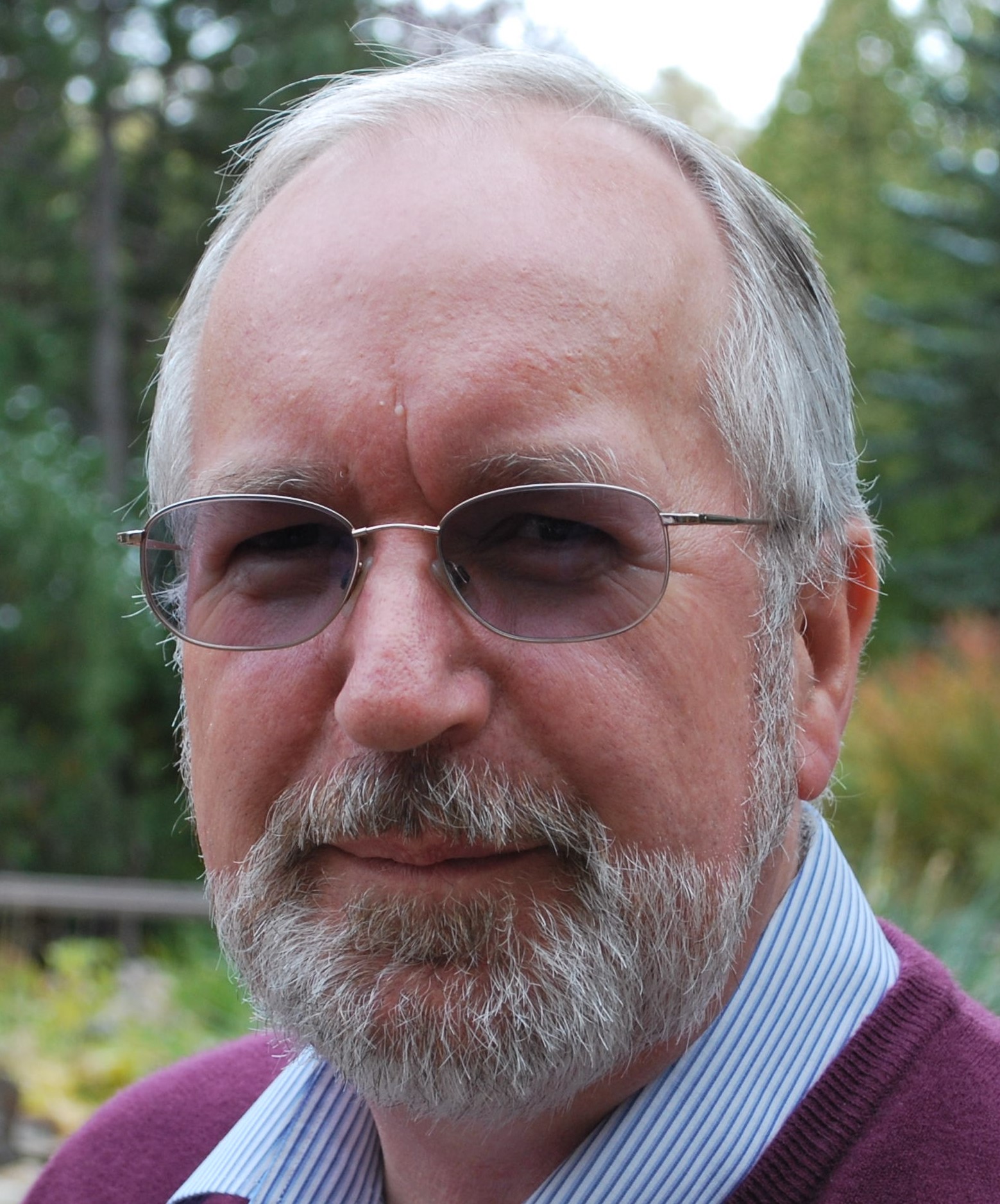
Dr. Graham Plastow
Dr. Graham Plastow is a Professor in the Faculty of Agricultural, Life and Environmental Sciences at the University of Alberta and Chief Executive Officer of the Livestock Gentec Centre (funded by Alberta Innovates Bio Solutions). The Centre focuses on the development, implementation and adoption of genomics-based solutions for the livestock industry to help Canada’s food industry satisfy consumer demand for safe, healthy, quality meat produced in a sustainable manner. Dr. Plastow's research focuses on the application of genetics and genomics to livestock and in particular the reduction of the environmental footprint of production.
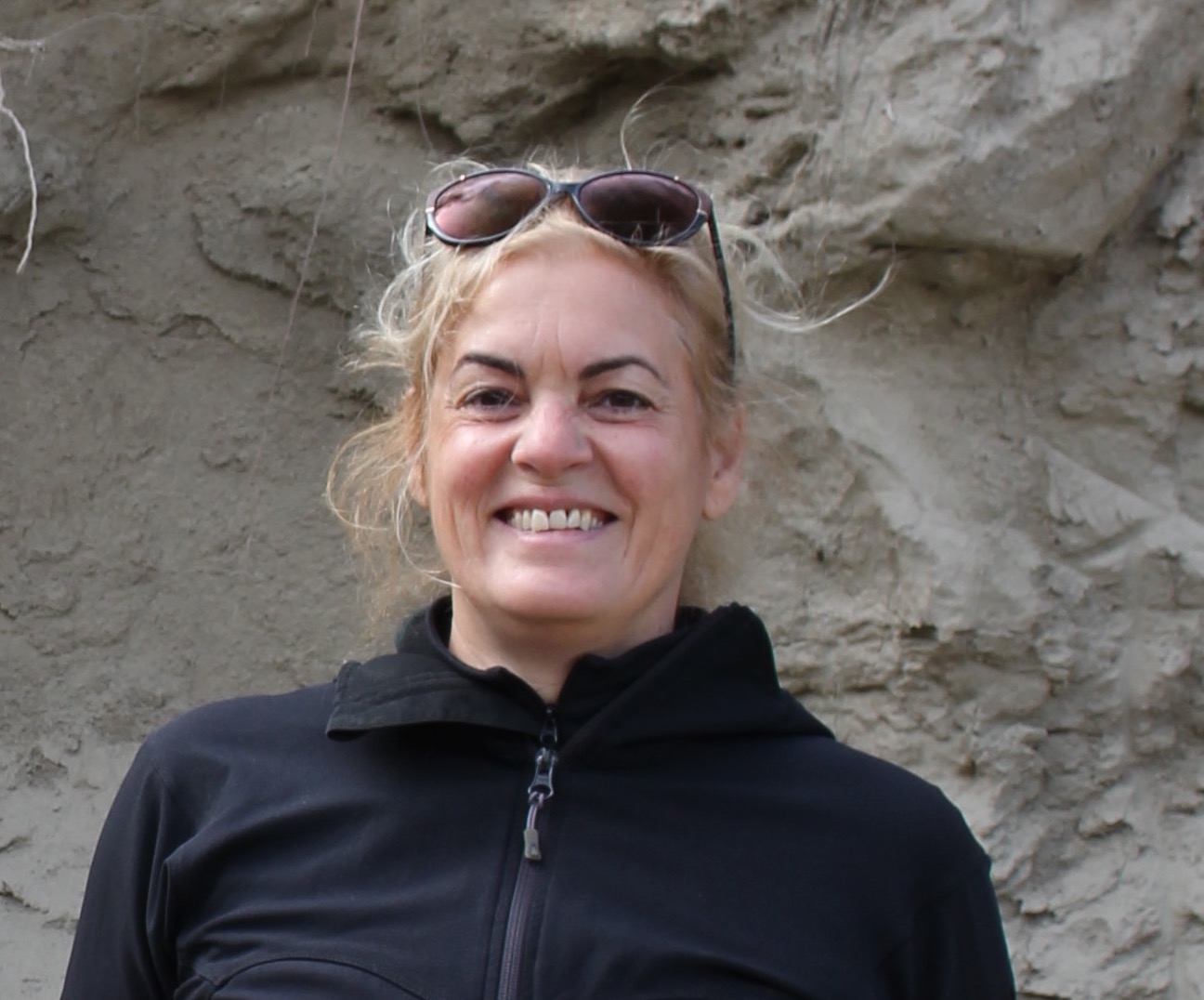
Dr. Sylvie Quideau
Dr. Sylvie Quideau is a soil biogeochemist at the University of Alberta with a special interest in carbon fluxes and organic matter processes. The focus of her research is in three areas: 1) quantifying the impact of environmental factors on organic matter accumulation and distribution in soils; 2) relating measurable organic matter quality indices to soil functioning; and 3) predicting the response of soil organic matter to natural and anthropogenic disturbance.
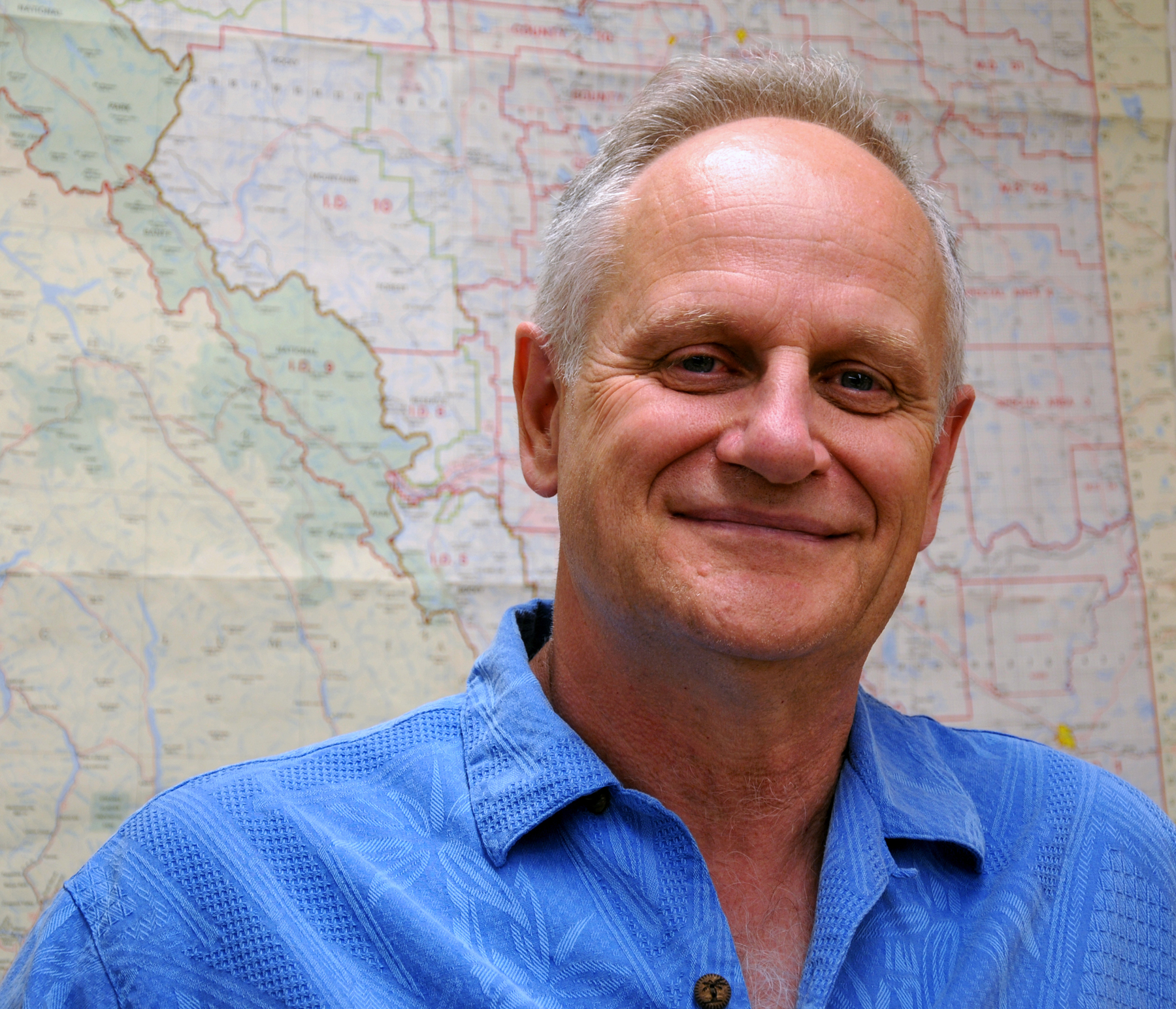
Dr. Donald J. Thompson
Dr. Don Thompson is a retired Range Plant Ecologist with Agriculture and Agri-Food Canada at the Lethbridge Research Centre. His research interests include range soil health; rangeland plant community responses to cattle grazing management; range productivity and forage quality; and climate change effects on rangeland plant community resilience.
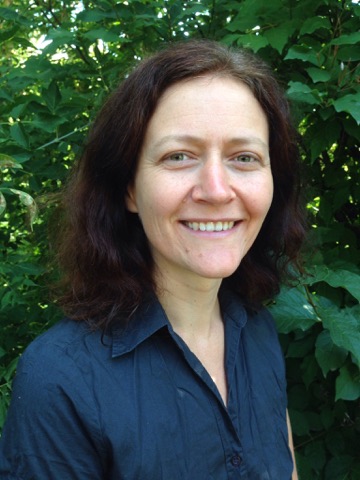
Dr. Viktoria Wagner
Dr. Viktoria Wagner is an assistant professor in the Department of Biological Sciences, at the University of Alberta. She and her lab members work in plant ecology and ecoinformatics and aim to understand why habitats become susceptible to invasive non-native plants, how management actions affect their biological components, and try to illuminate their biodiversity and ecological functions. Much of her work focuses on grassland plant communities. These habitats cover a quarter of the global terrestrial surface but face unprecedented and enormous pressure by land-use and climate change. Viktoria has conducted research in western Canada and the adjacent US states, Europe and Central Asia.
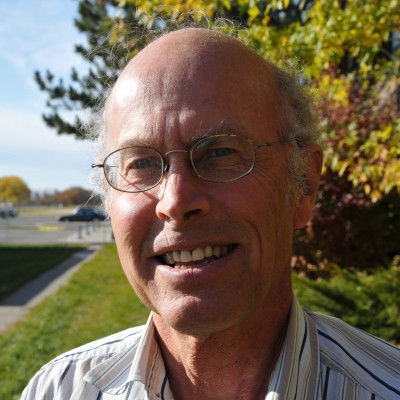
Dr. Walter Willms
Dr. Walter Willms retired from Agriculture and Agri-Food Canada in 2012 as a range ecologist where he conducted research for understanding the relationship between cattle and the native rangelands. He continues to collaborate with scientists at AAFC Lethbridge, the University of Alberta and the Inner Mongolia Agricultural University with data analyses and writing or reviewing manuscripts.
